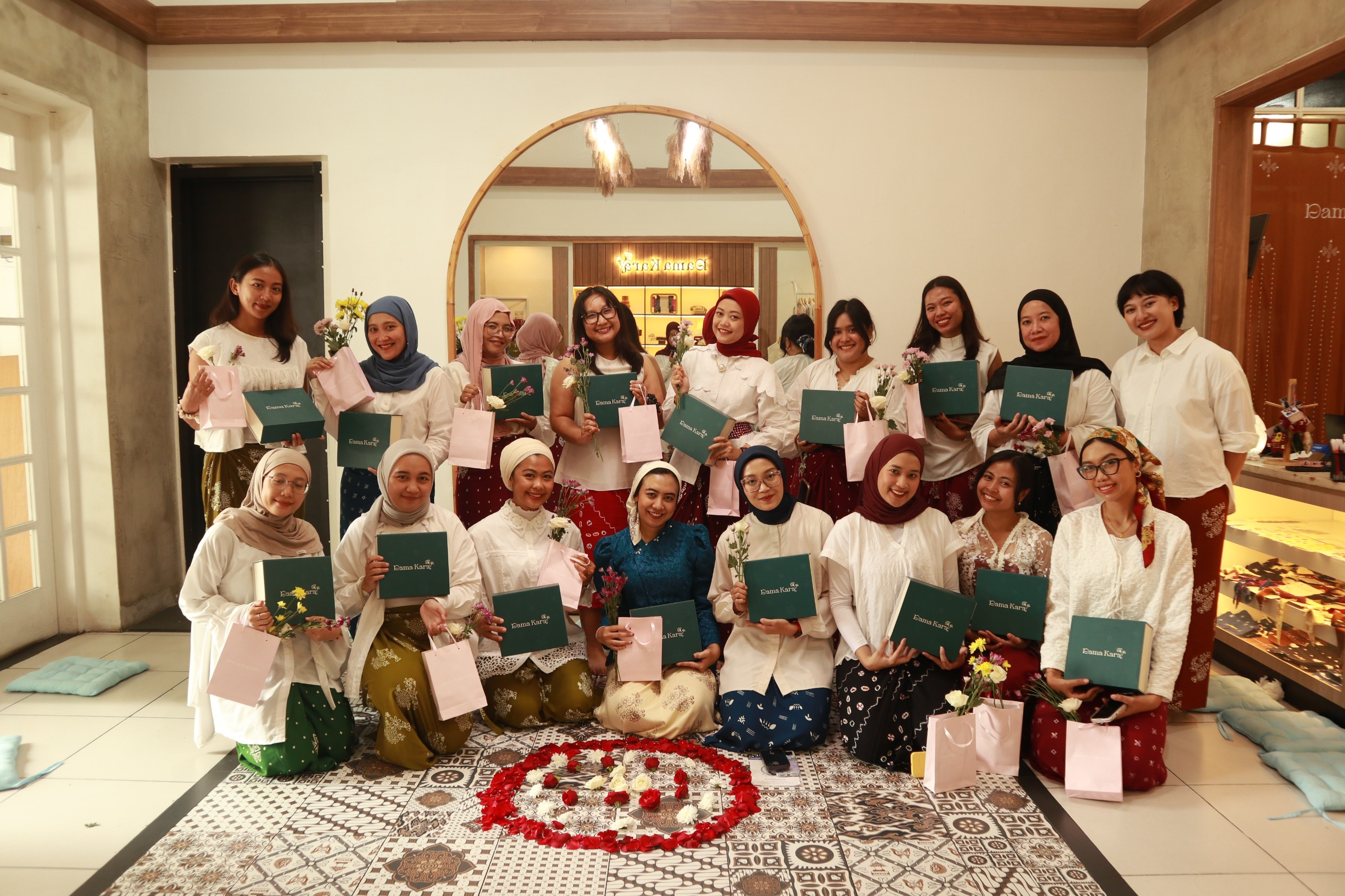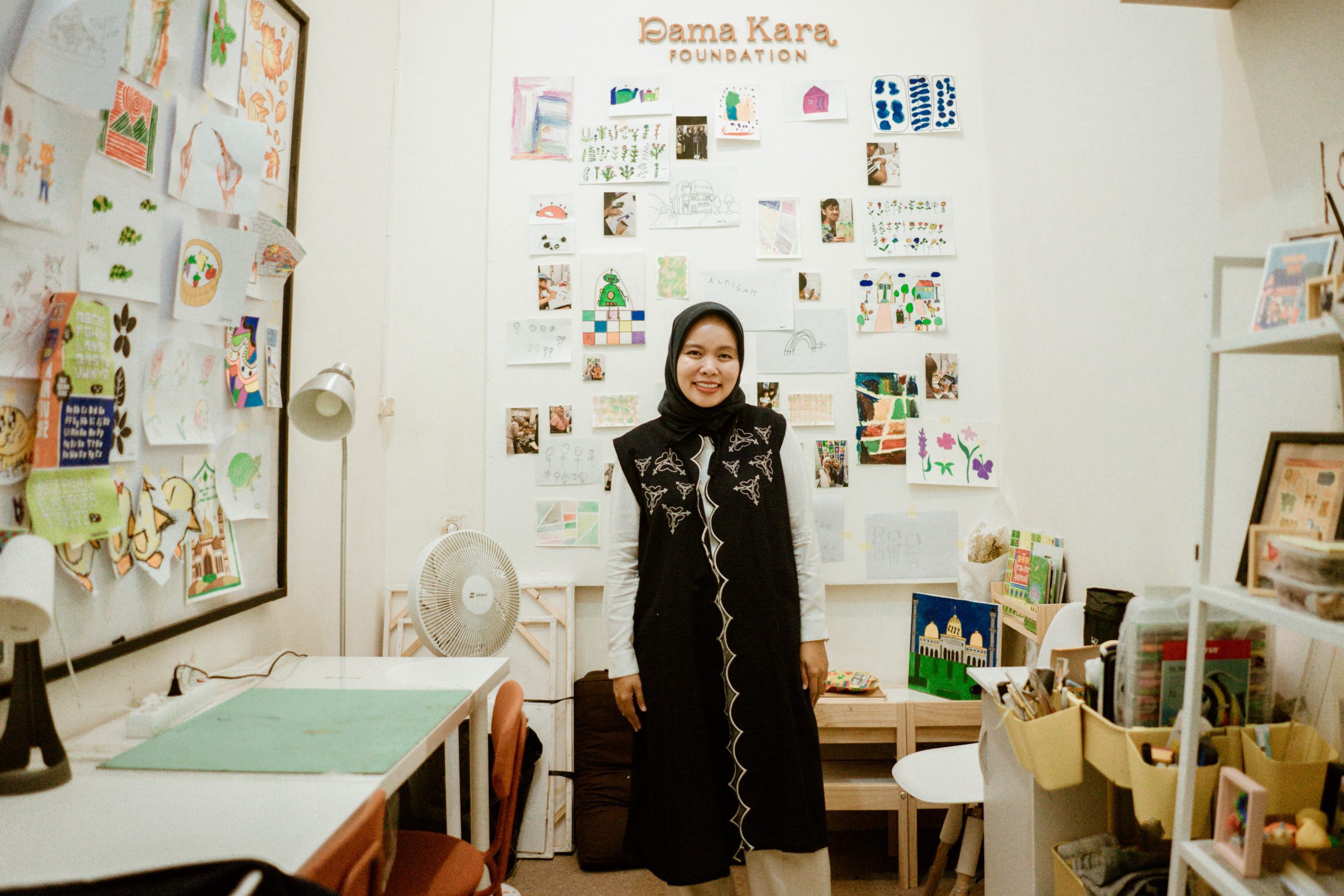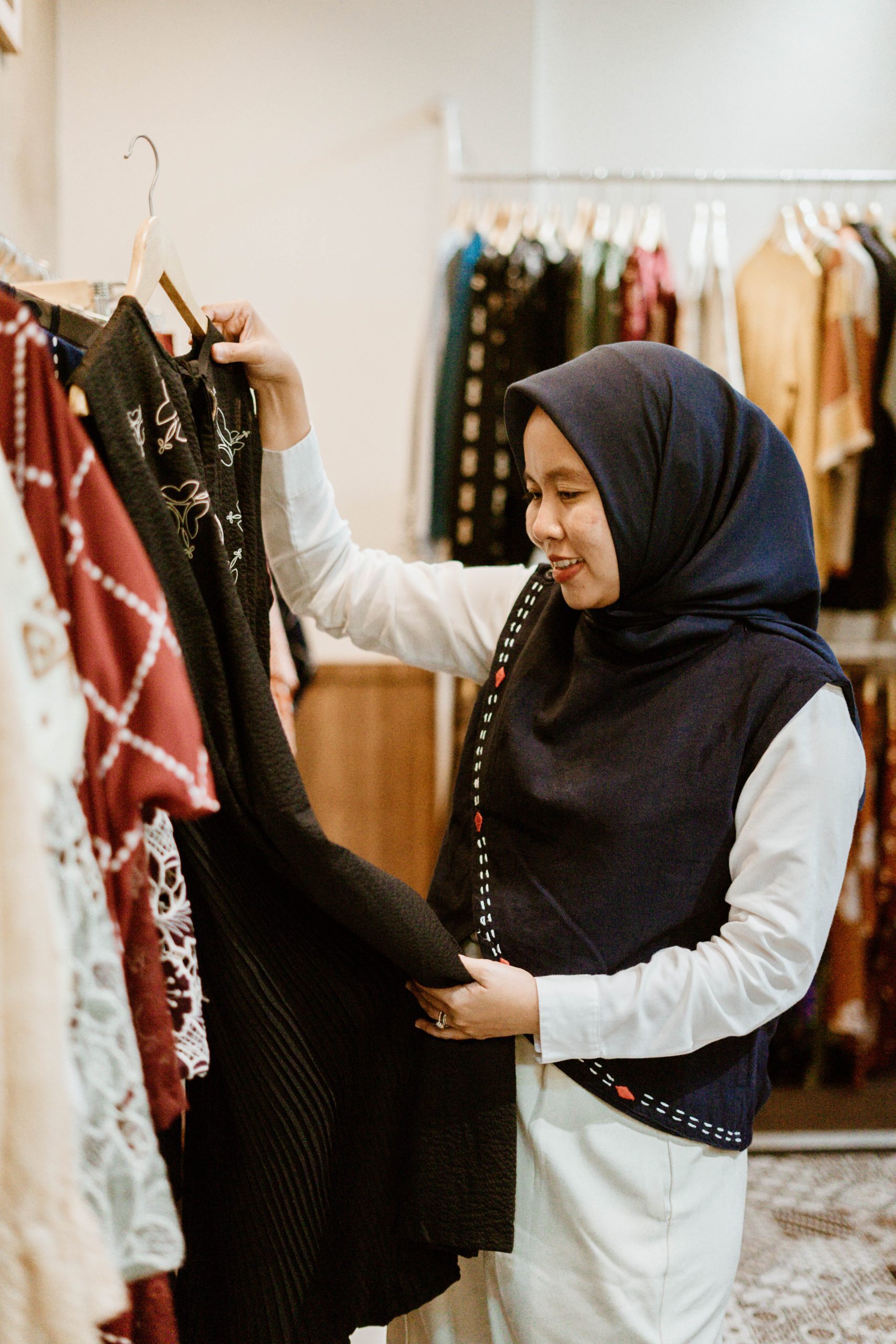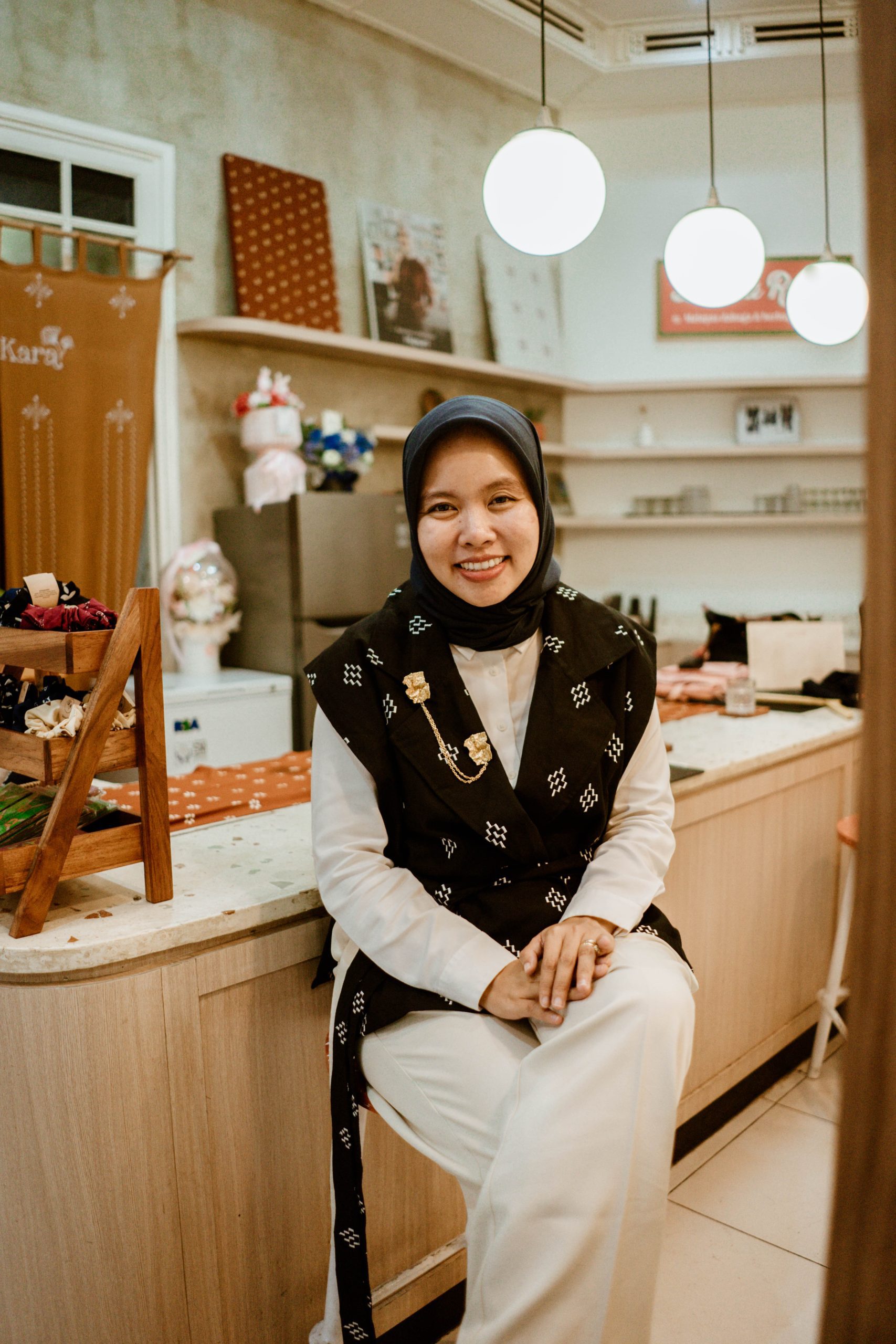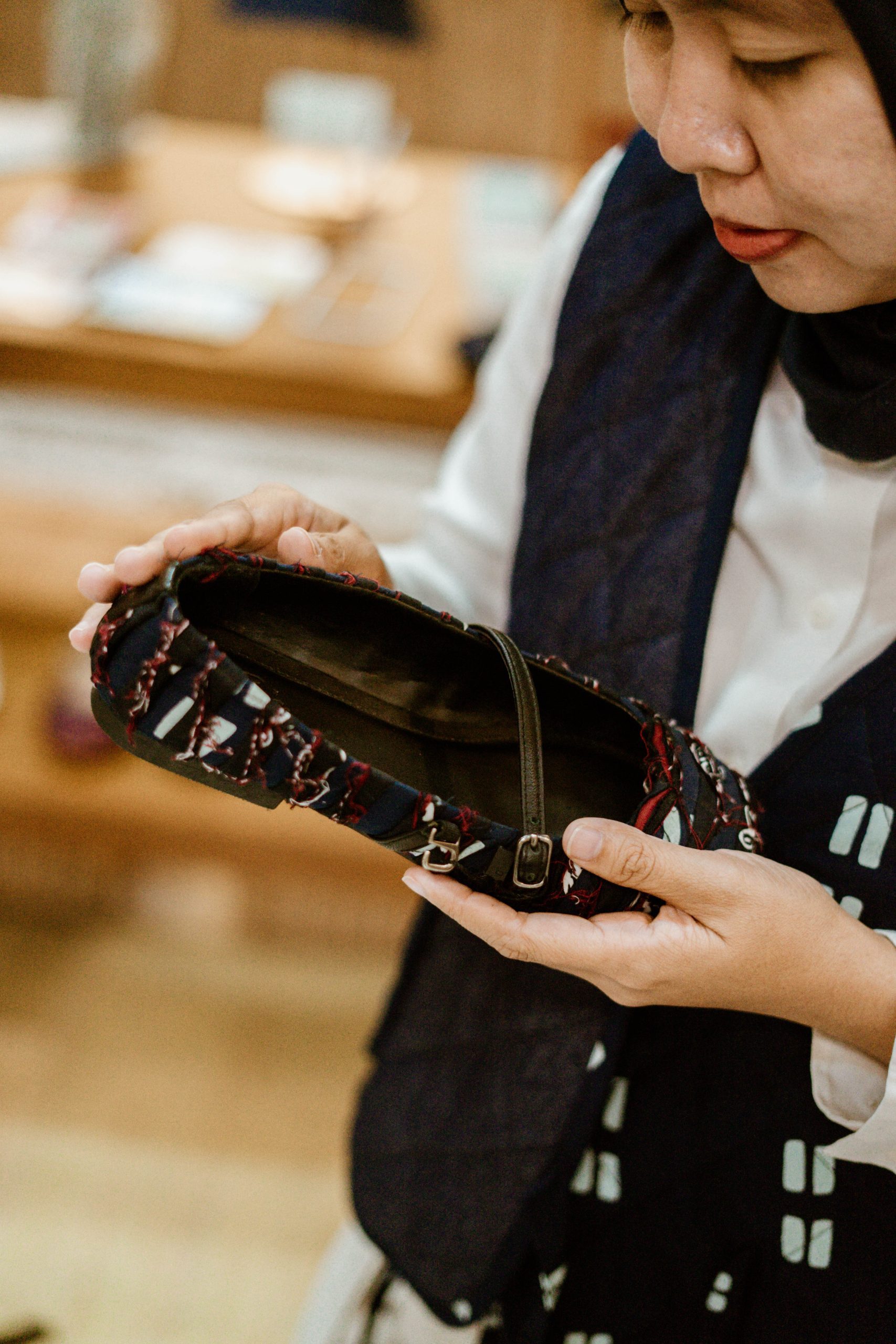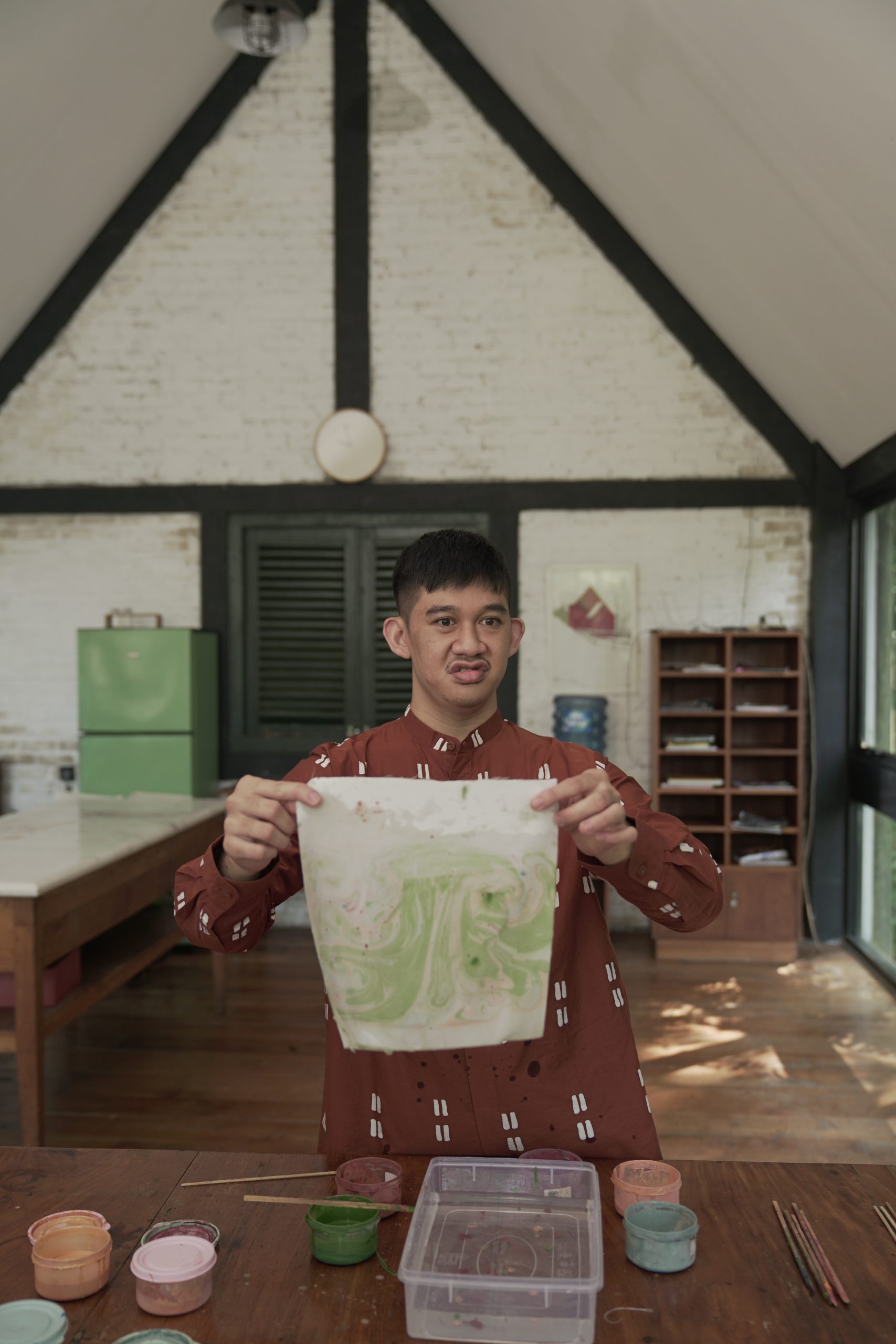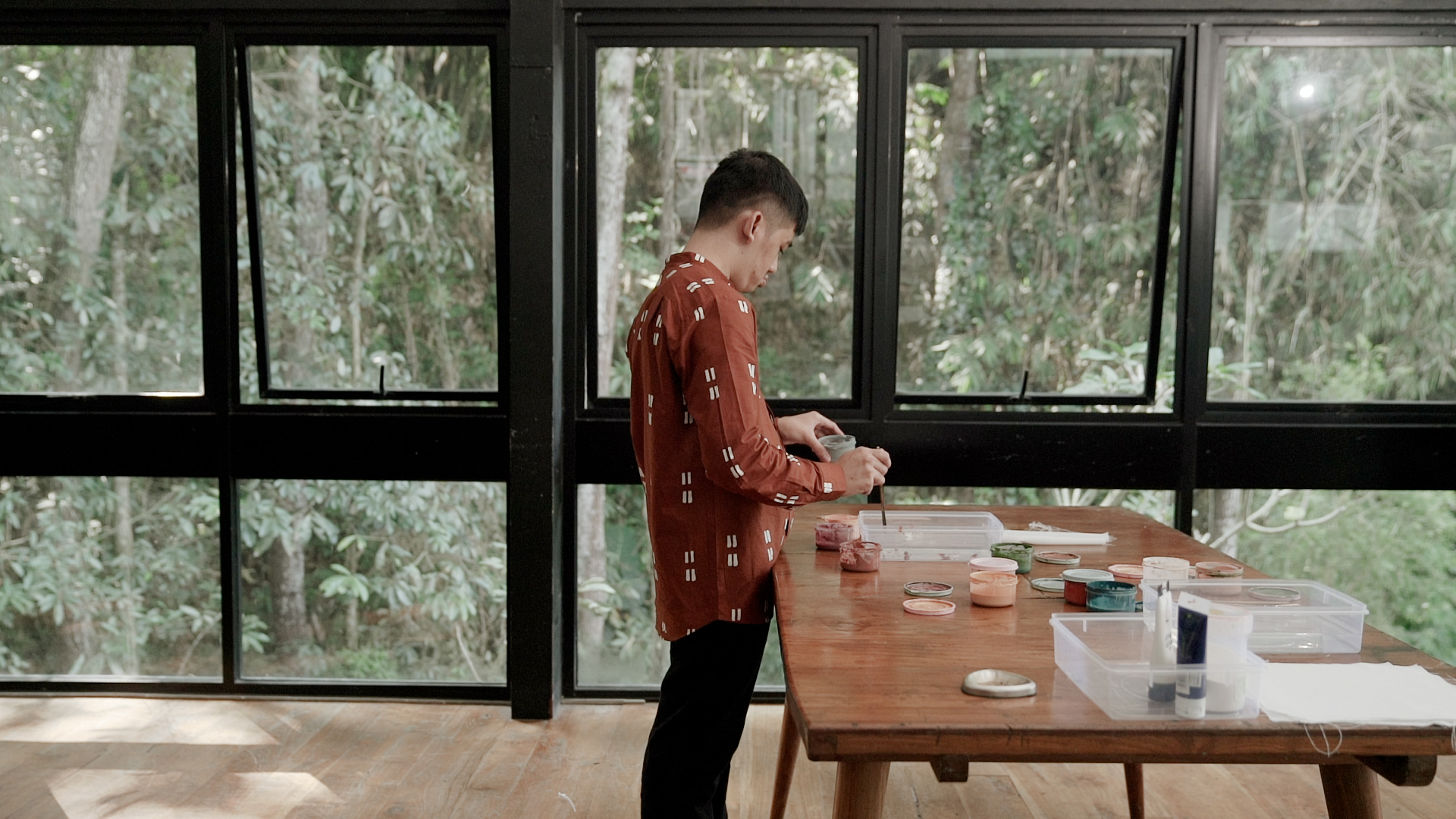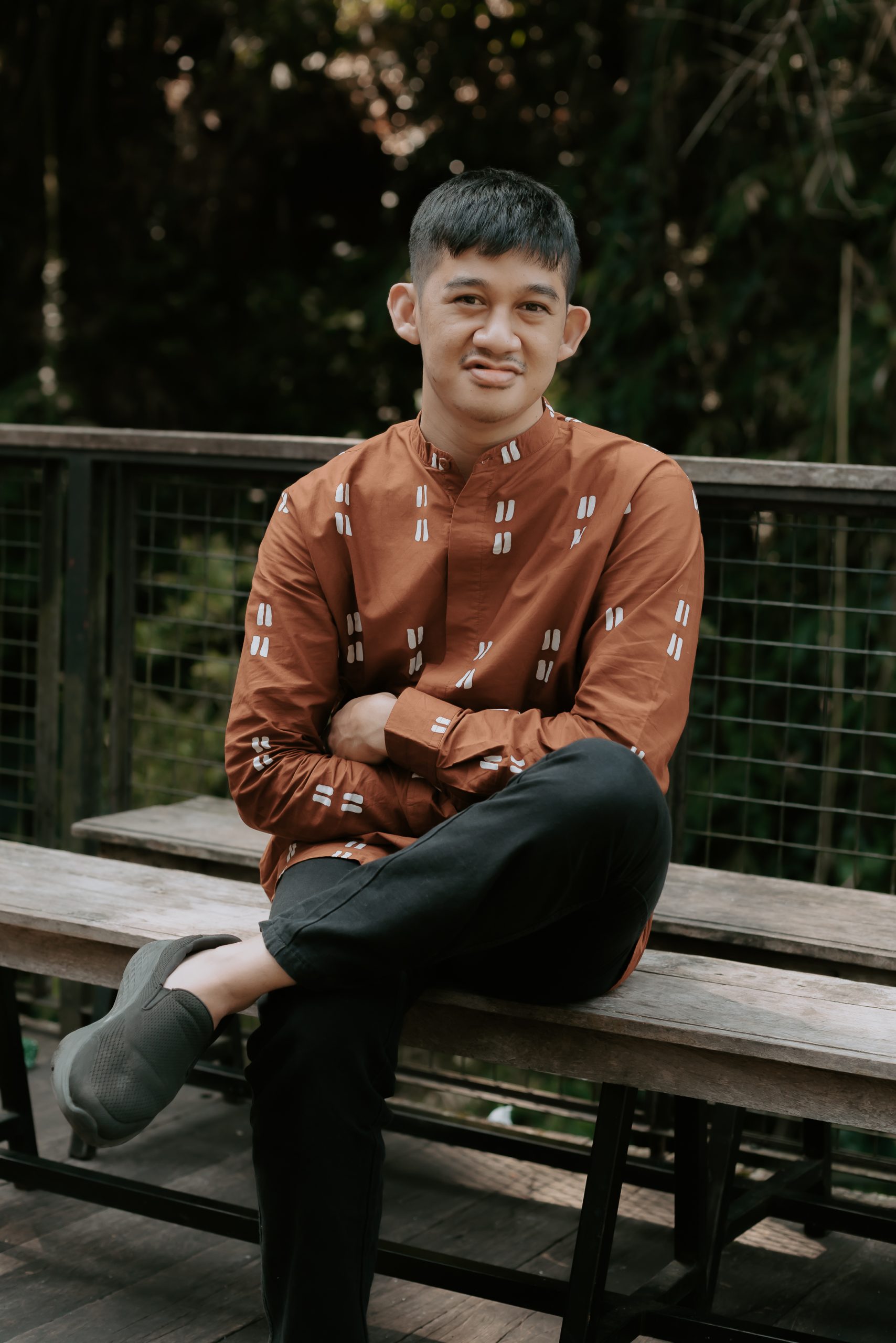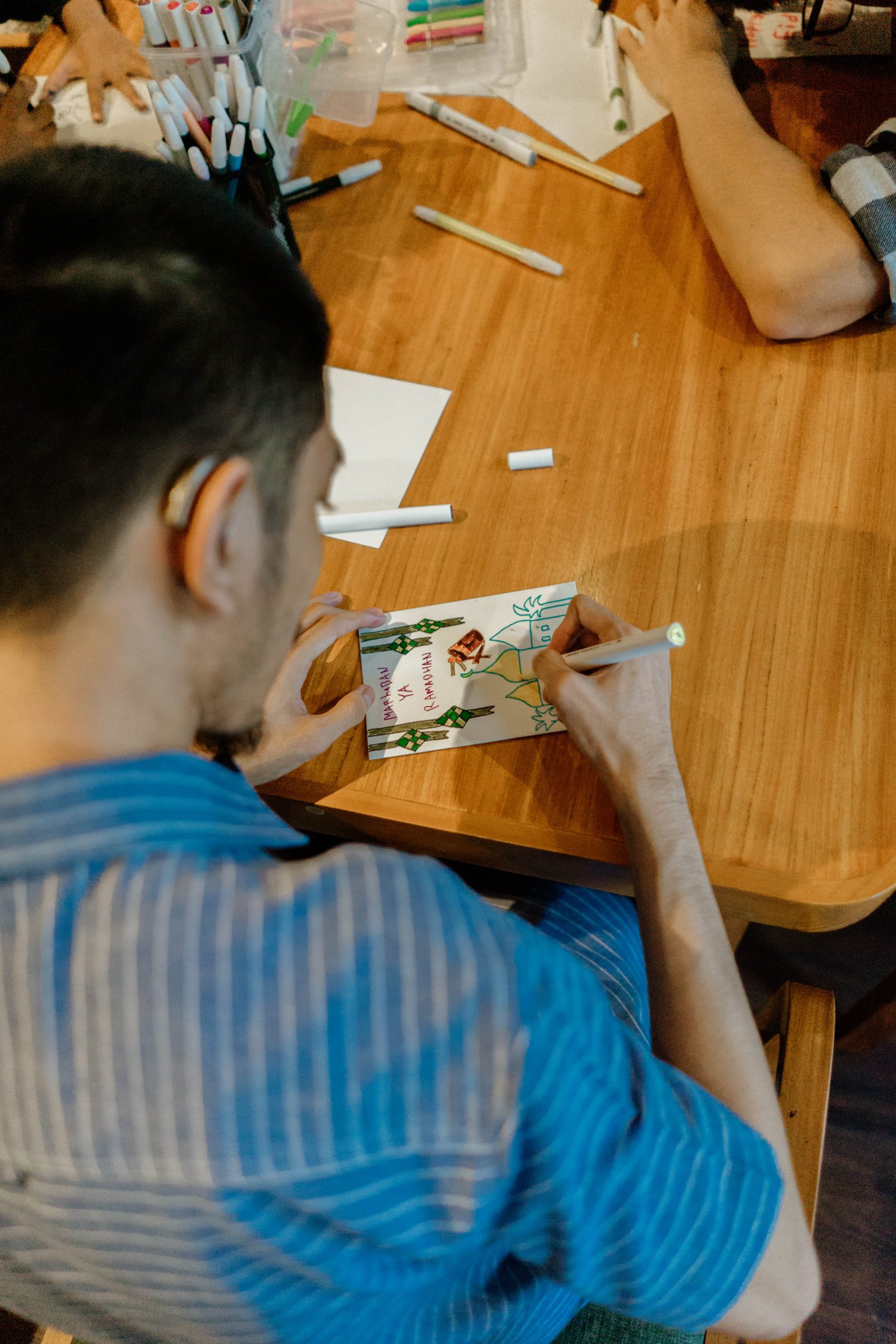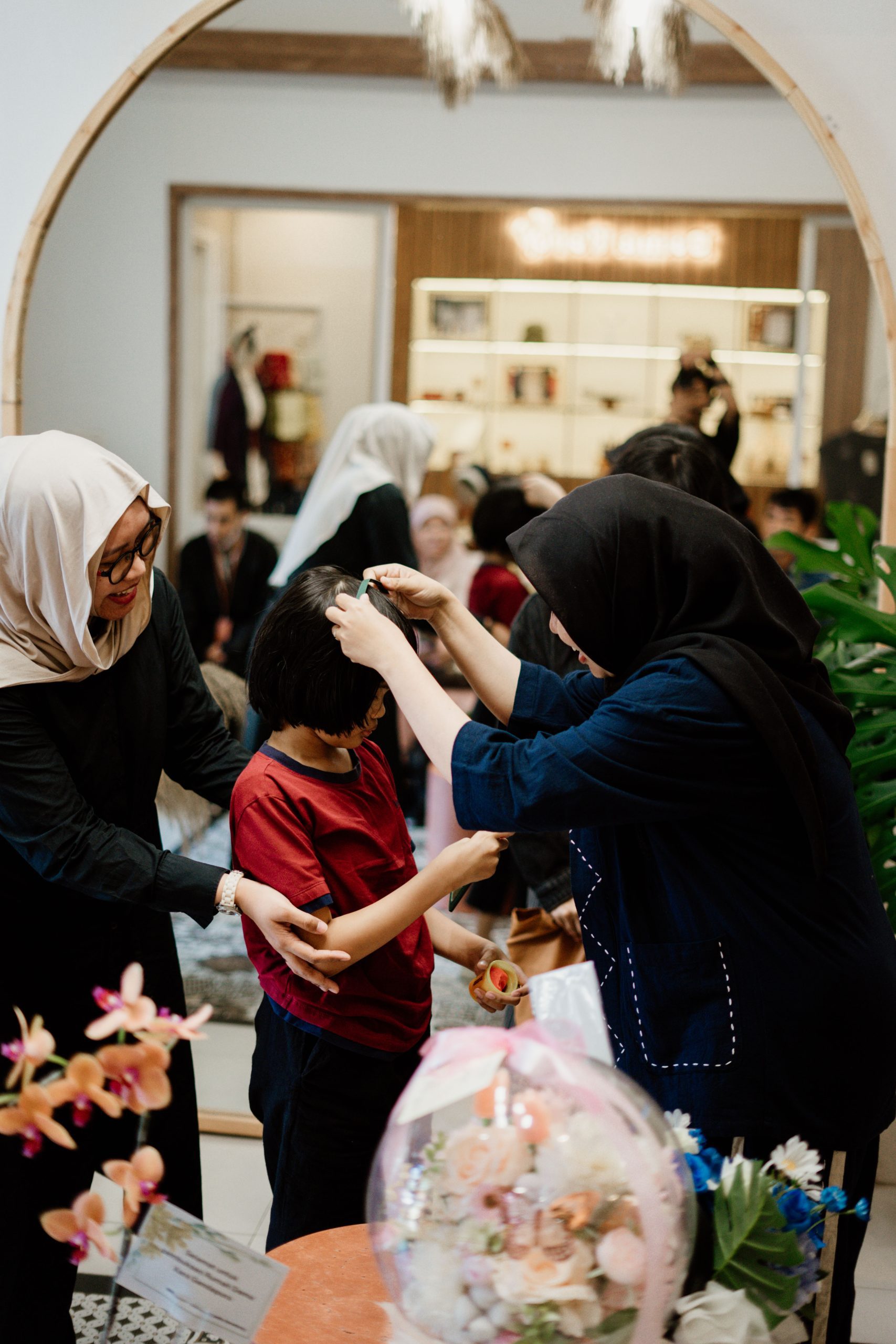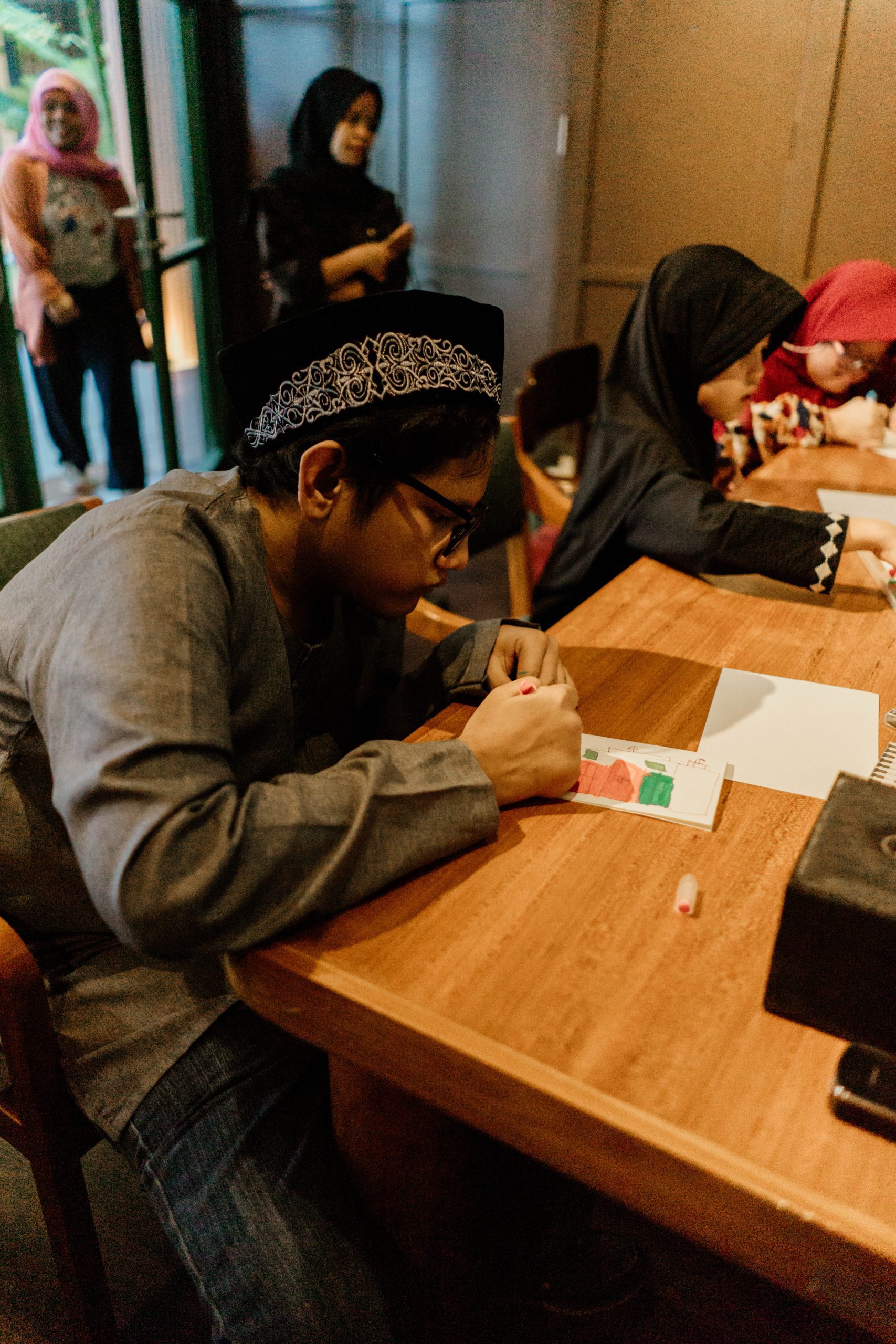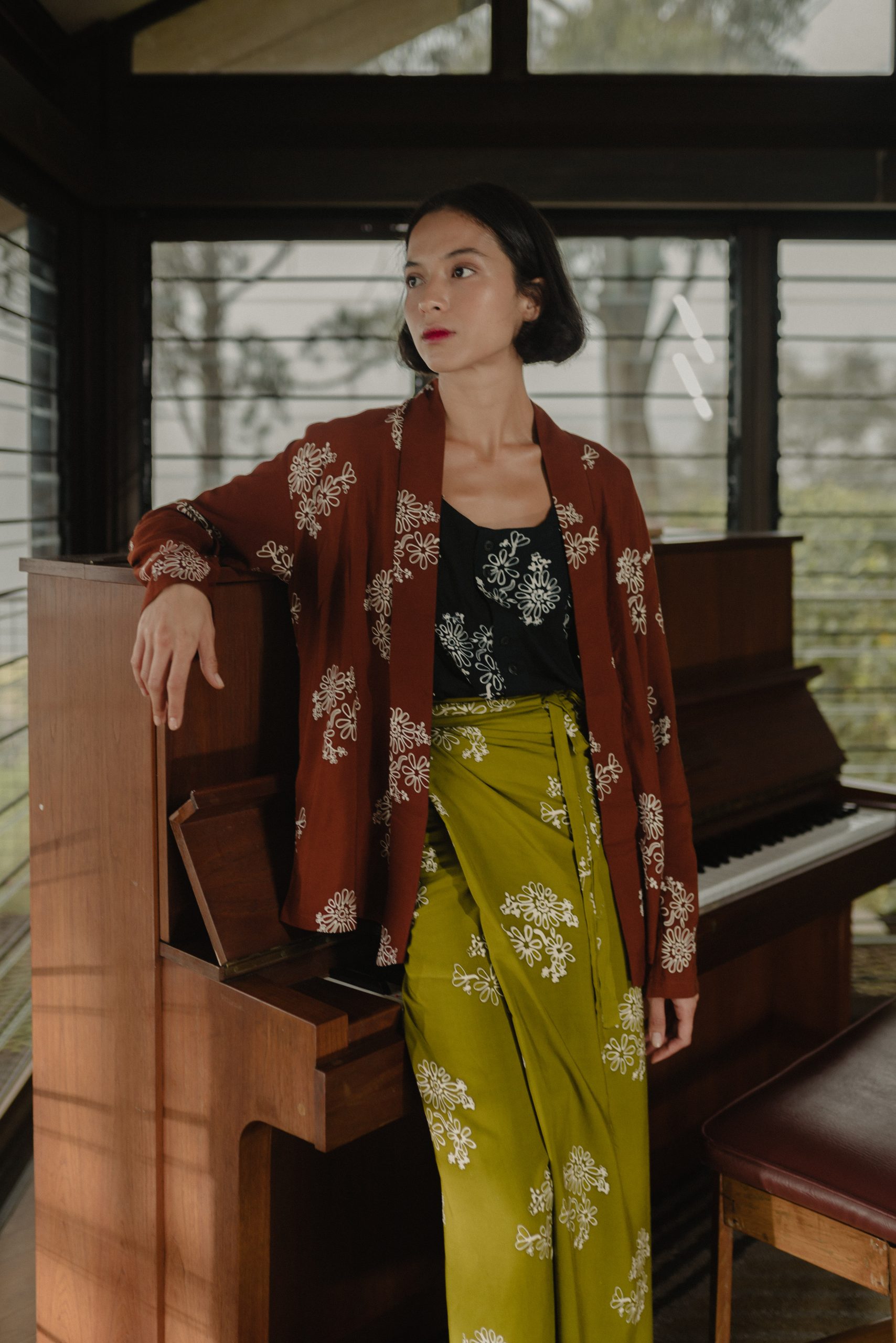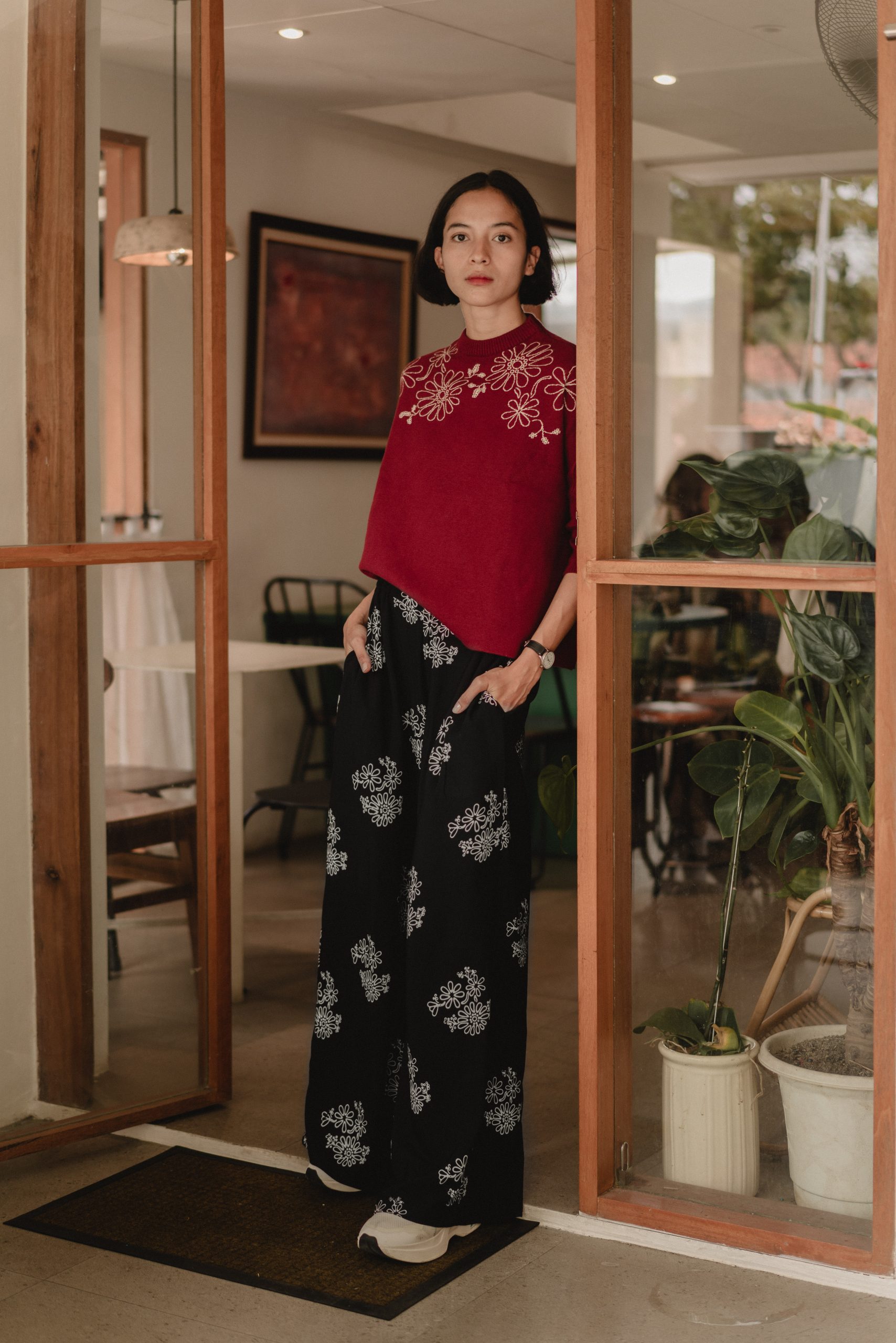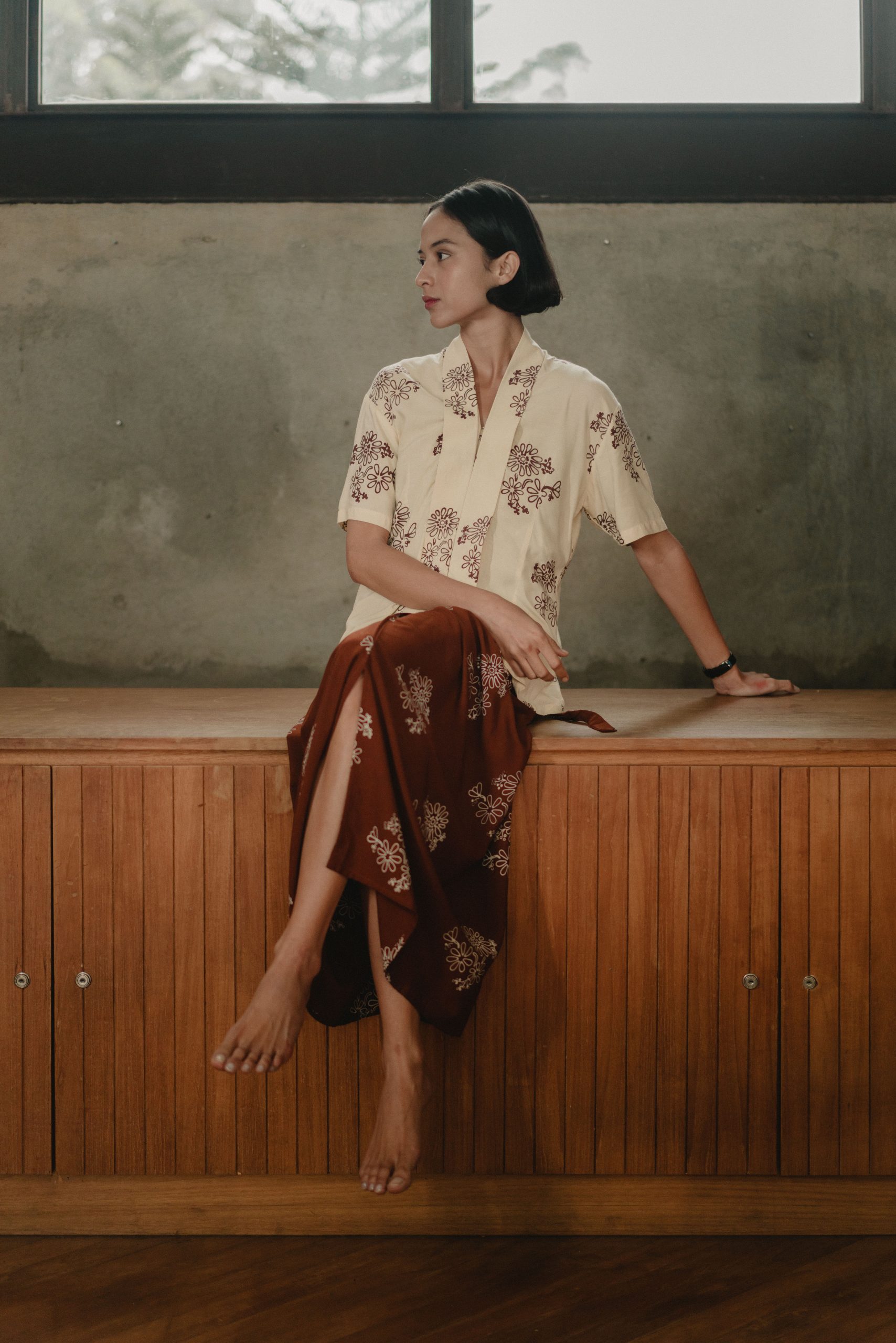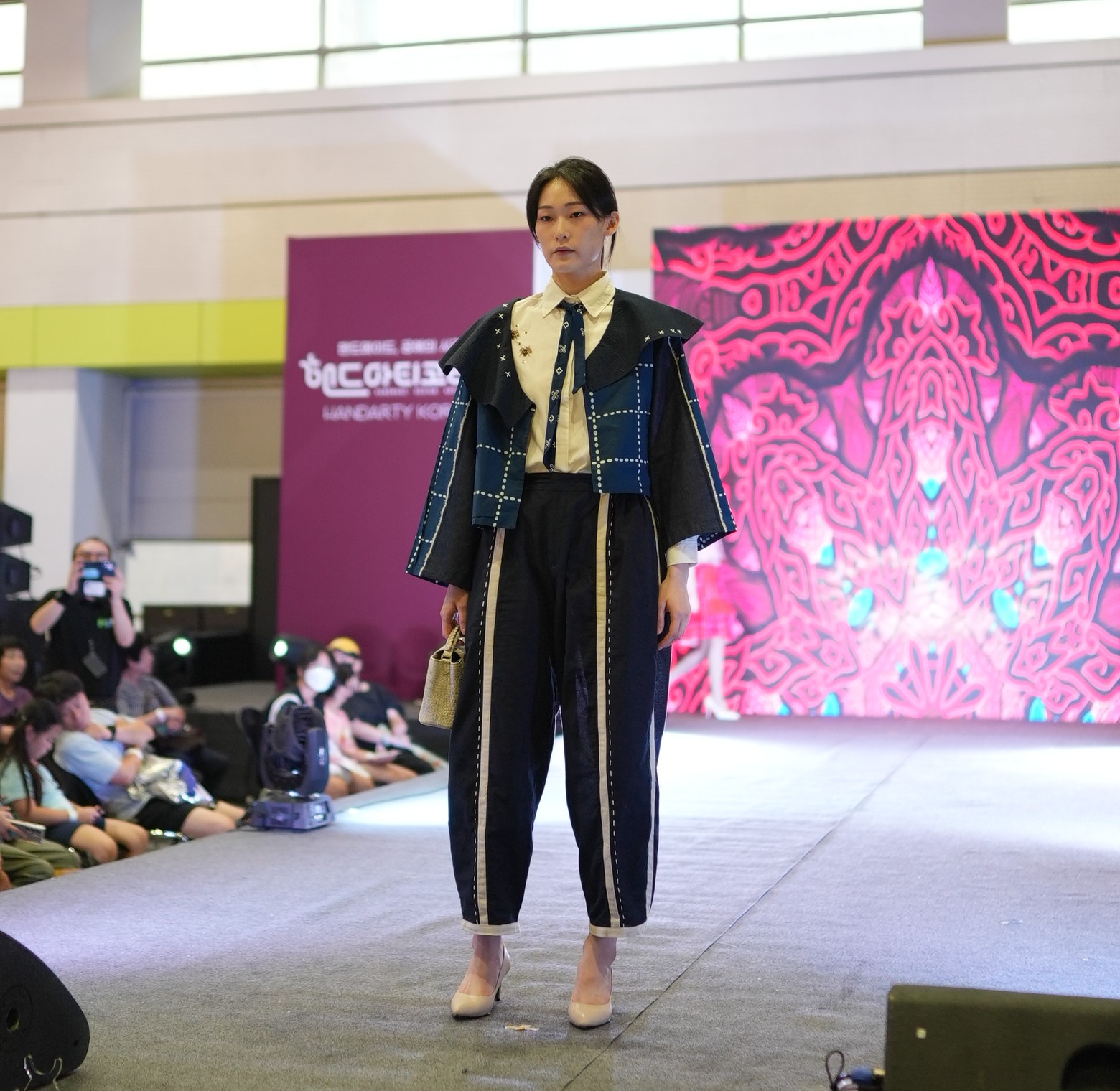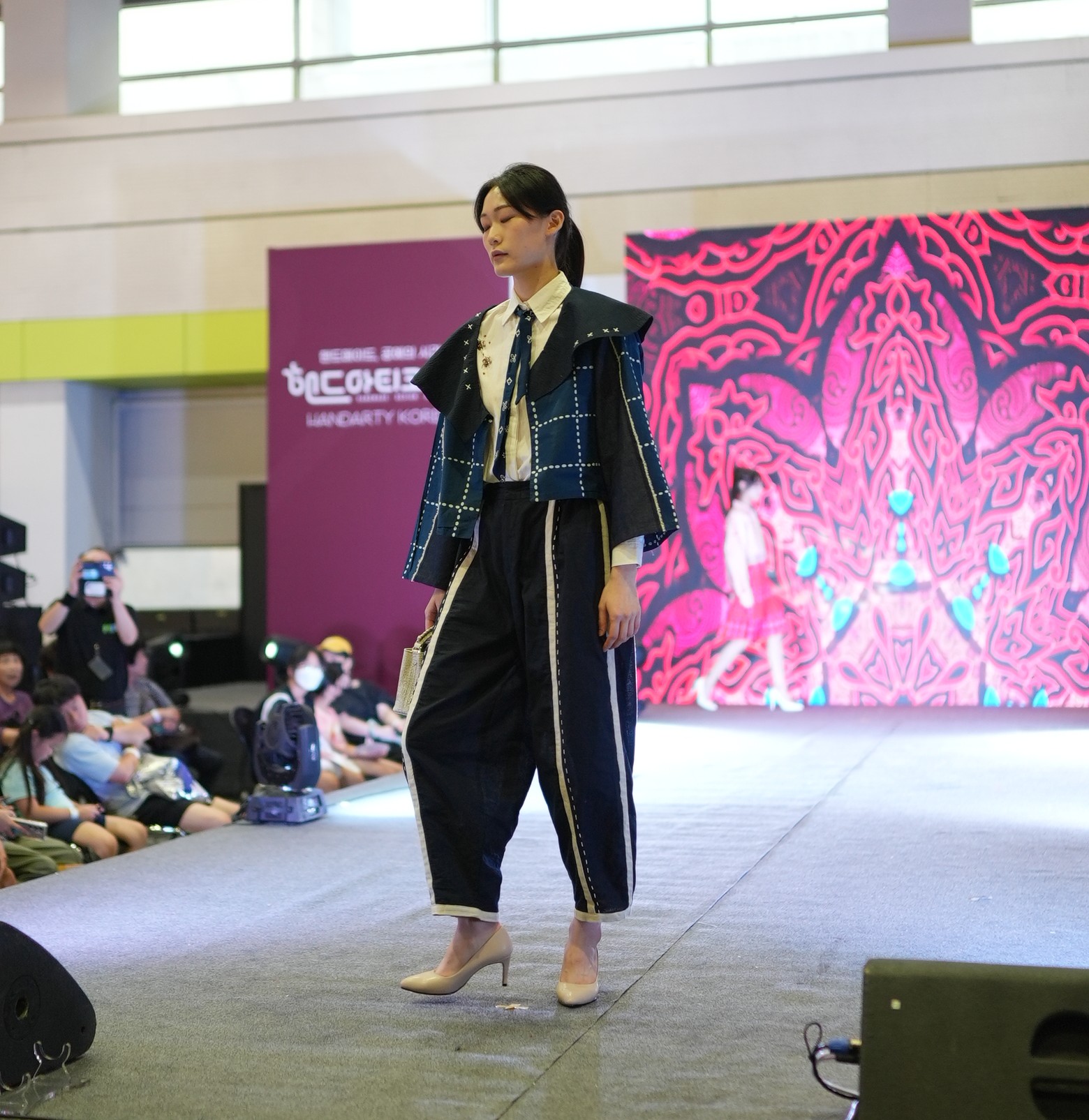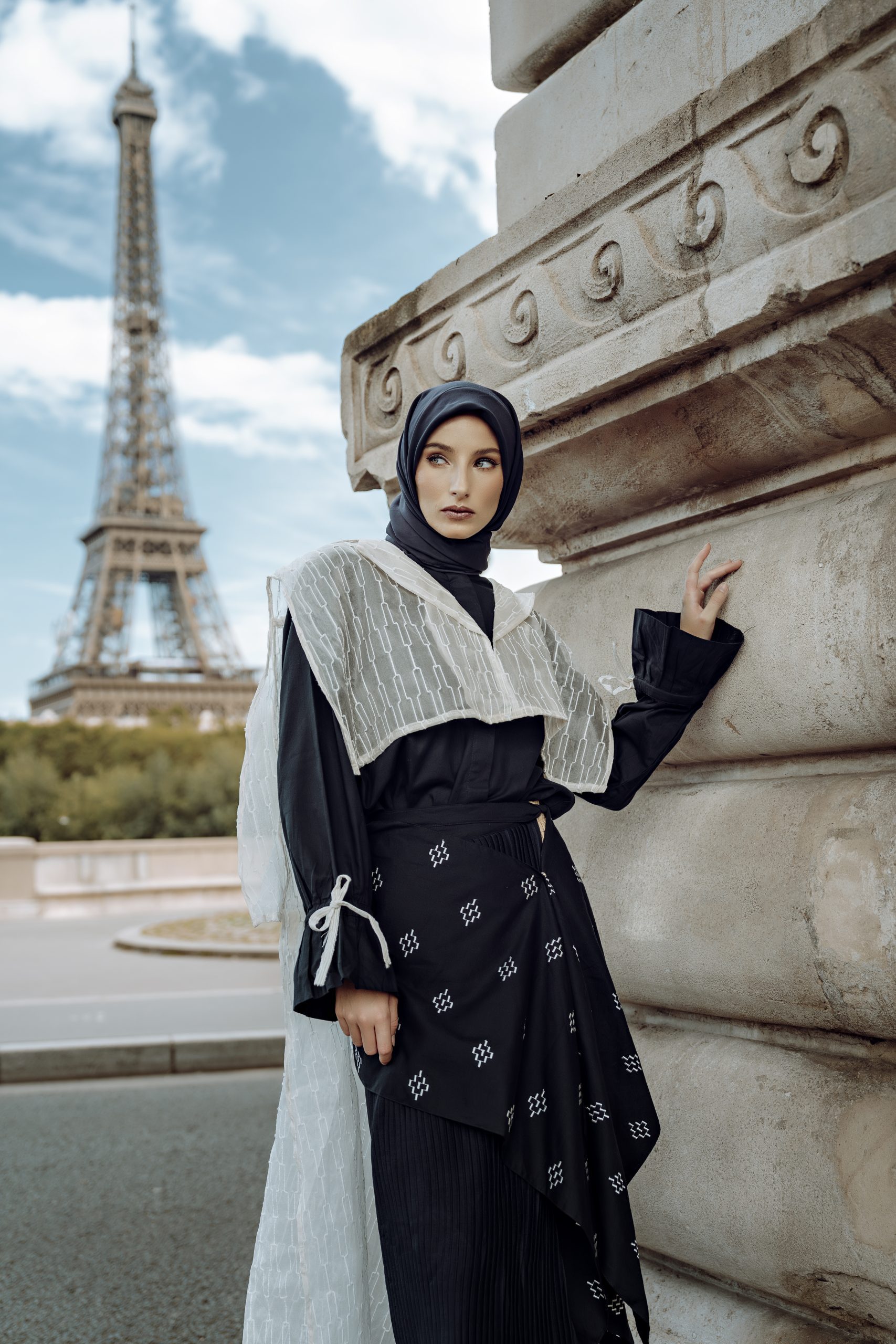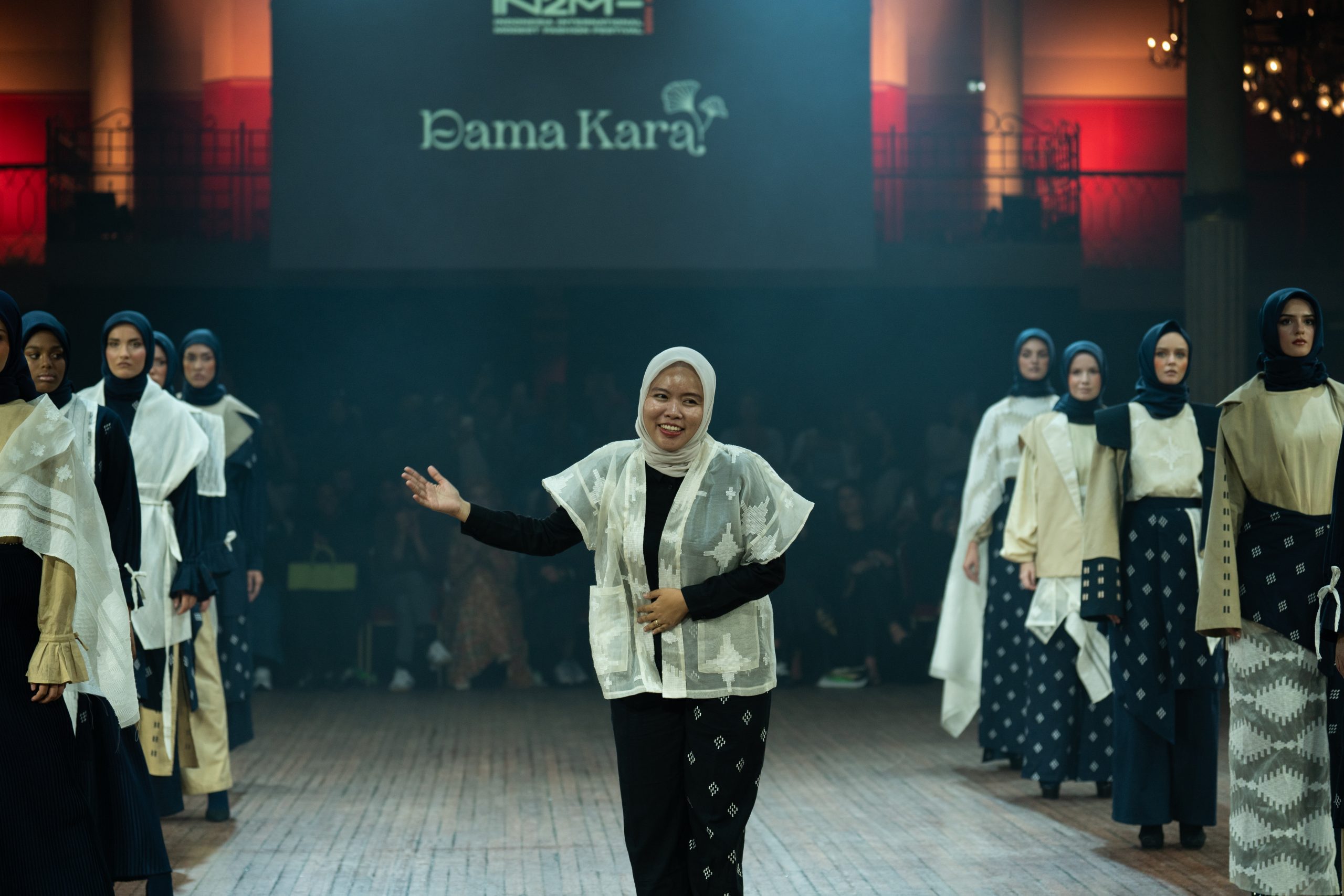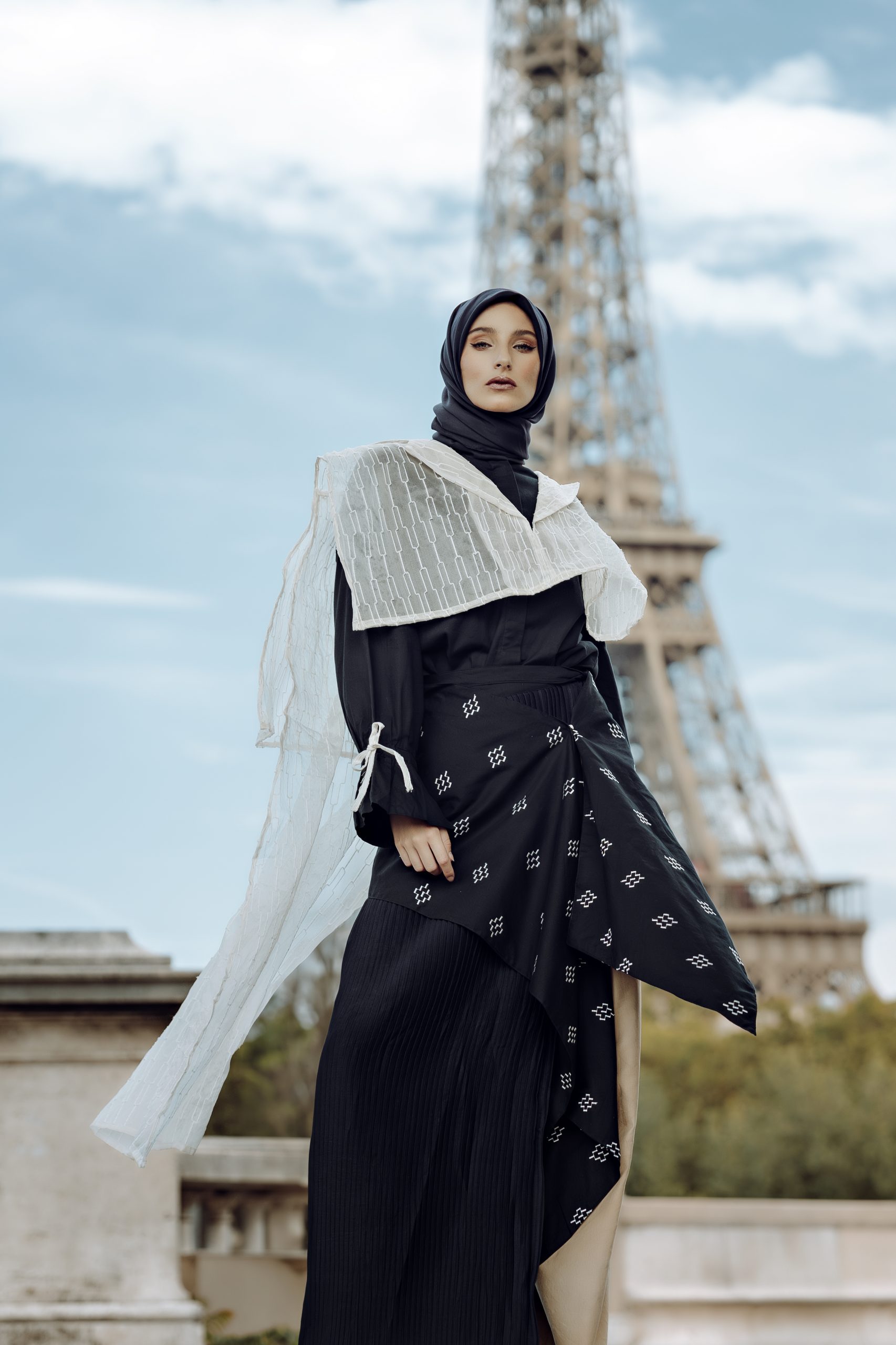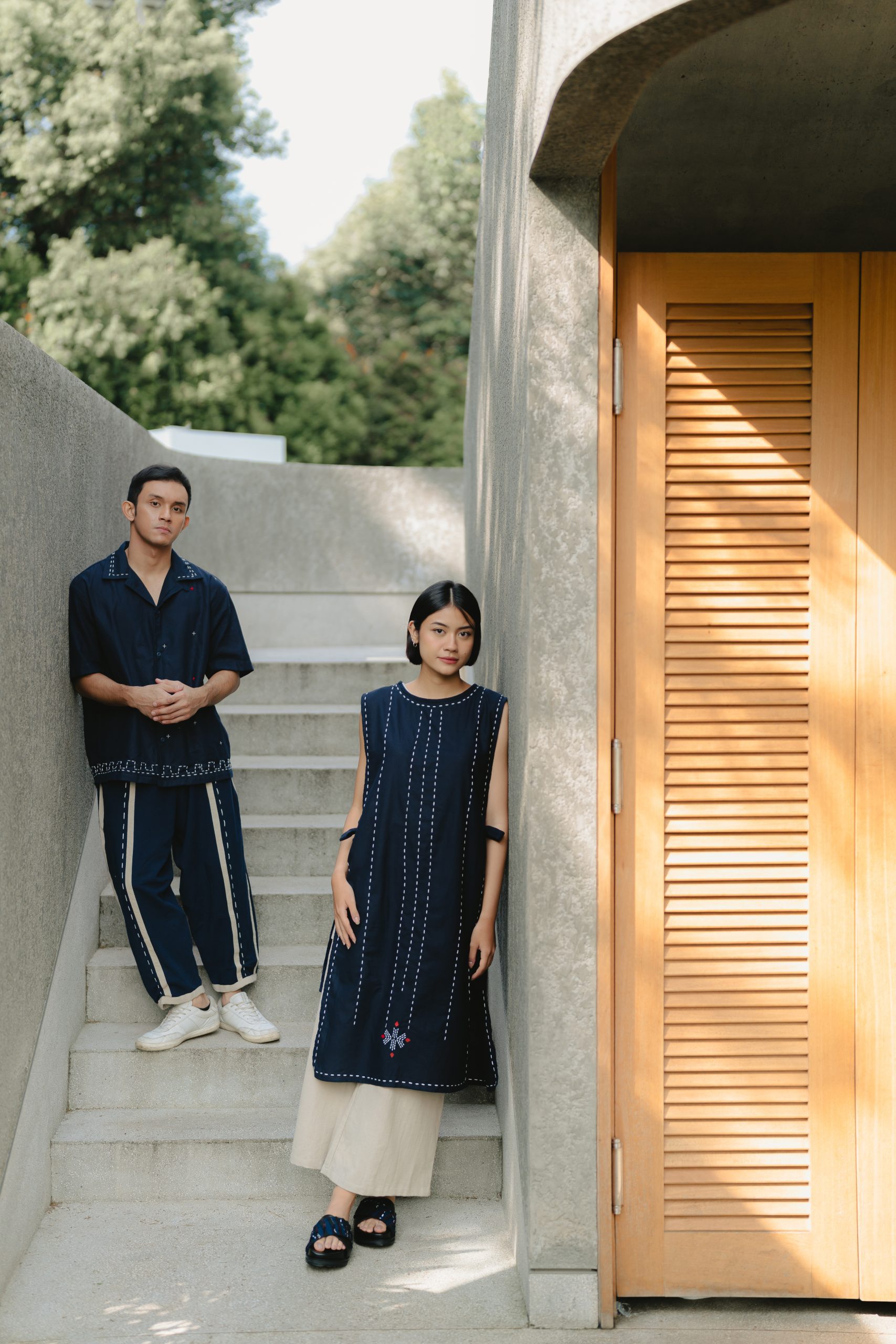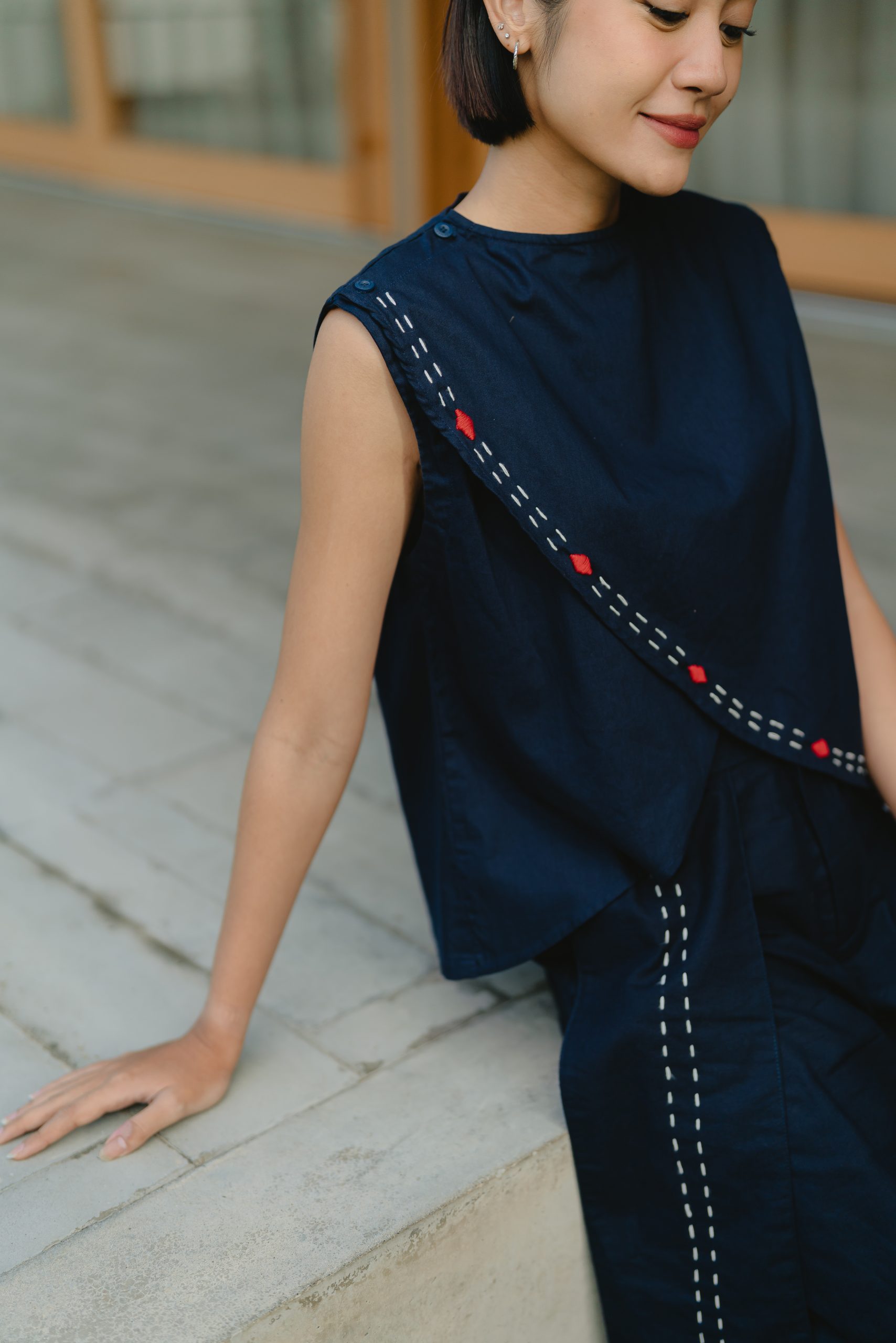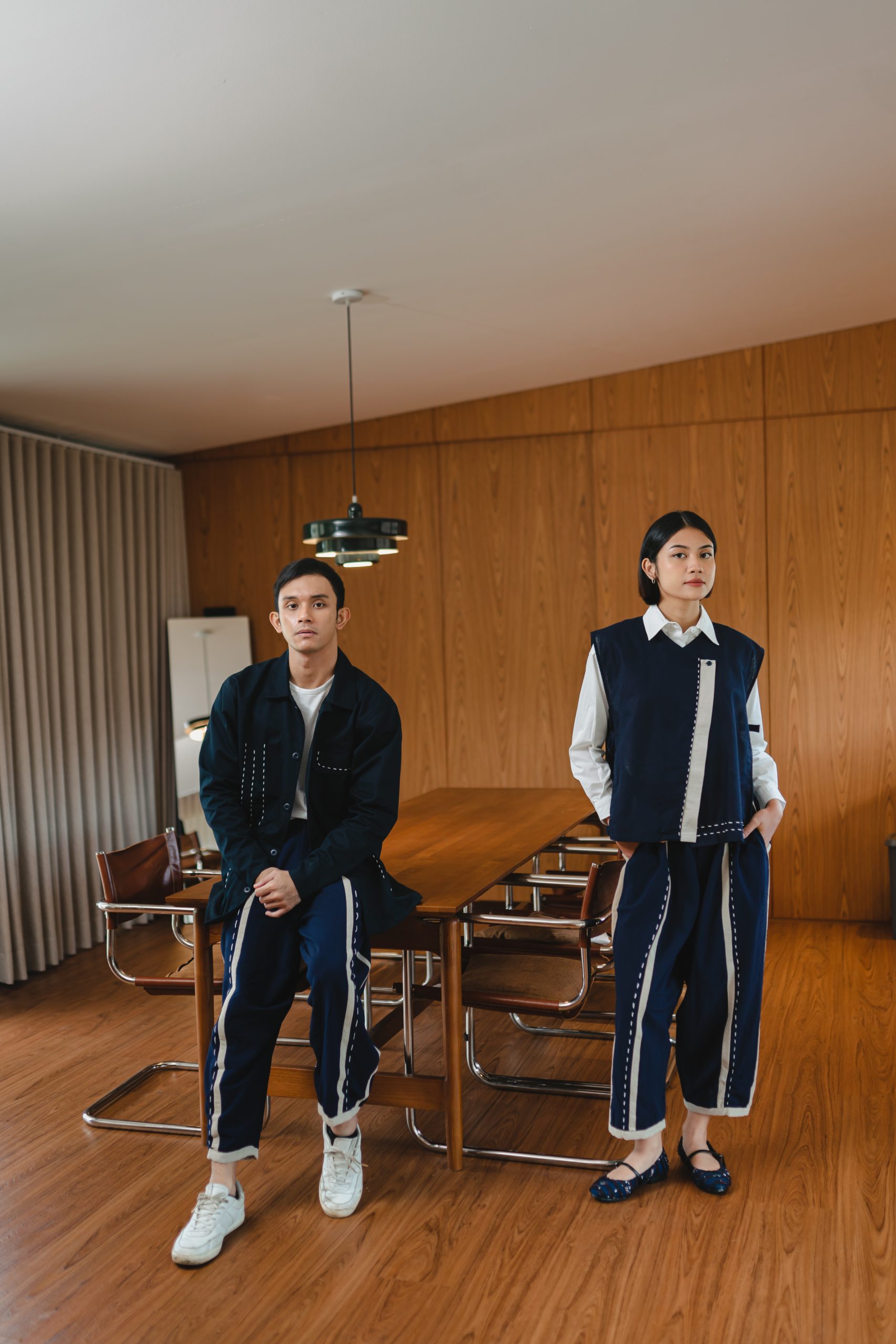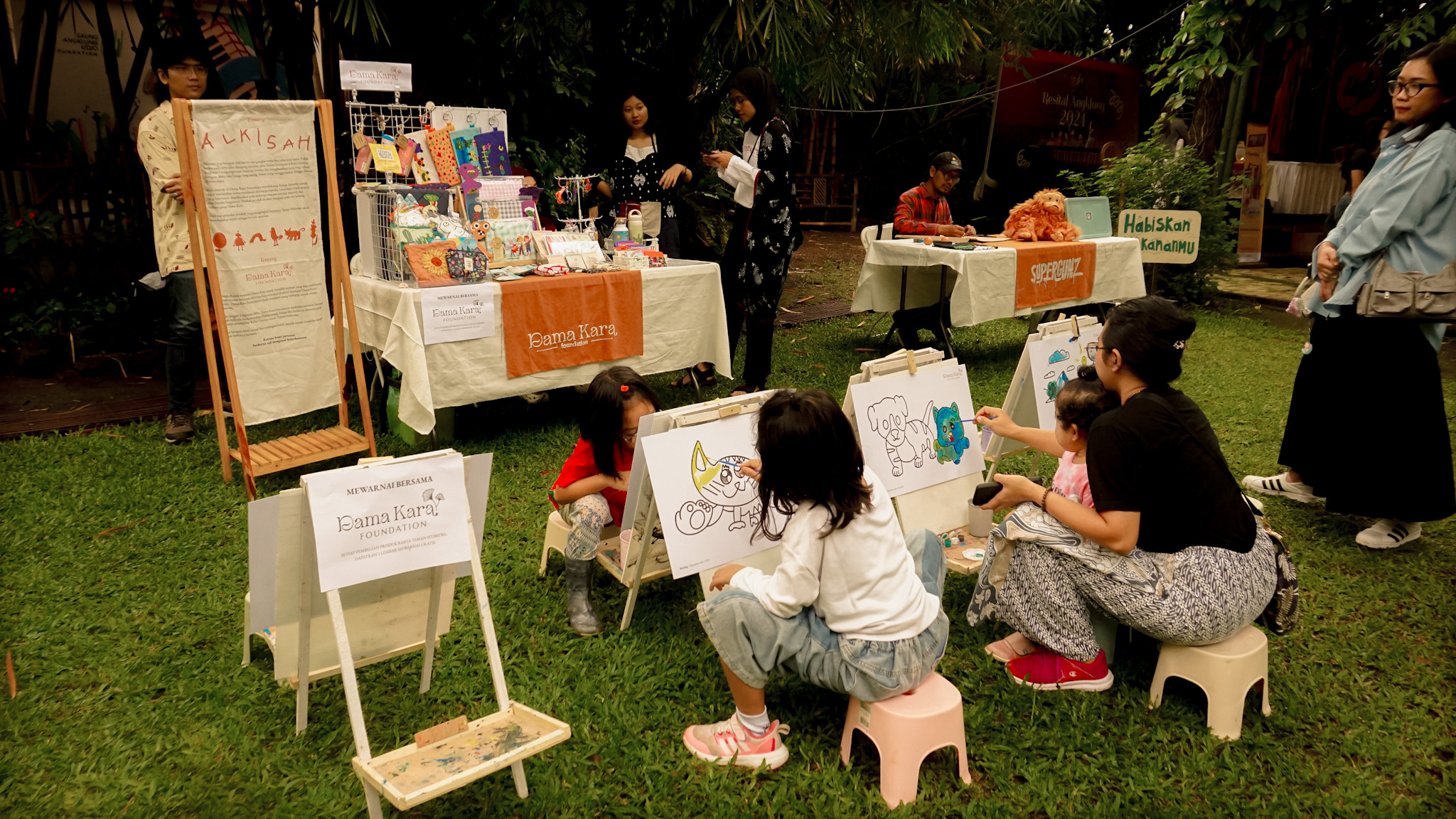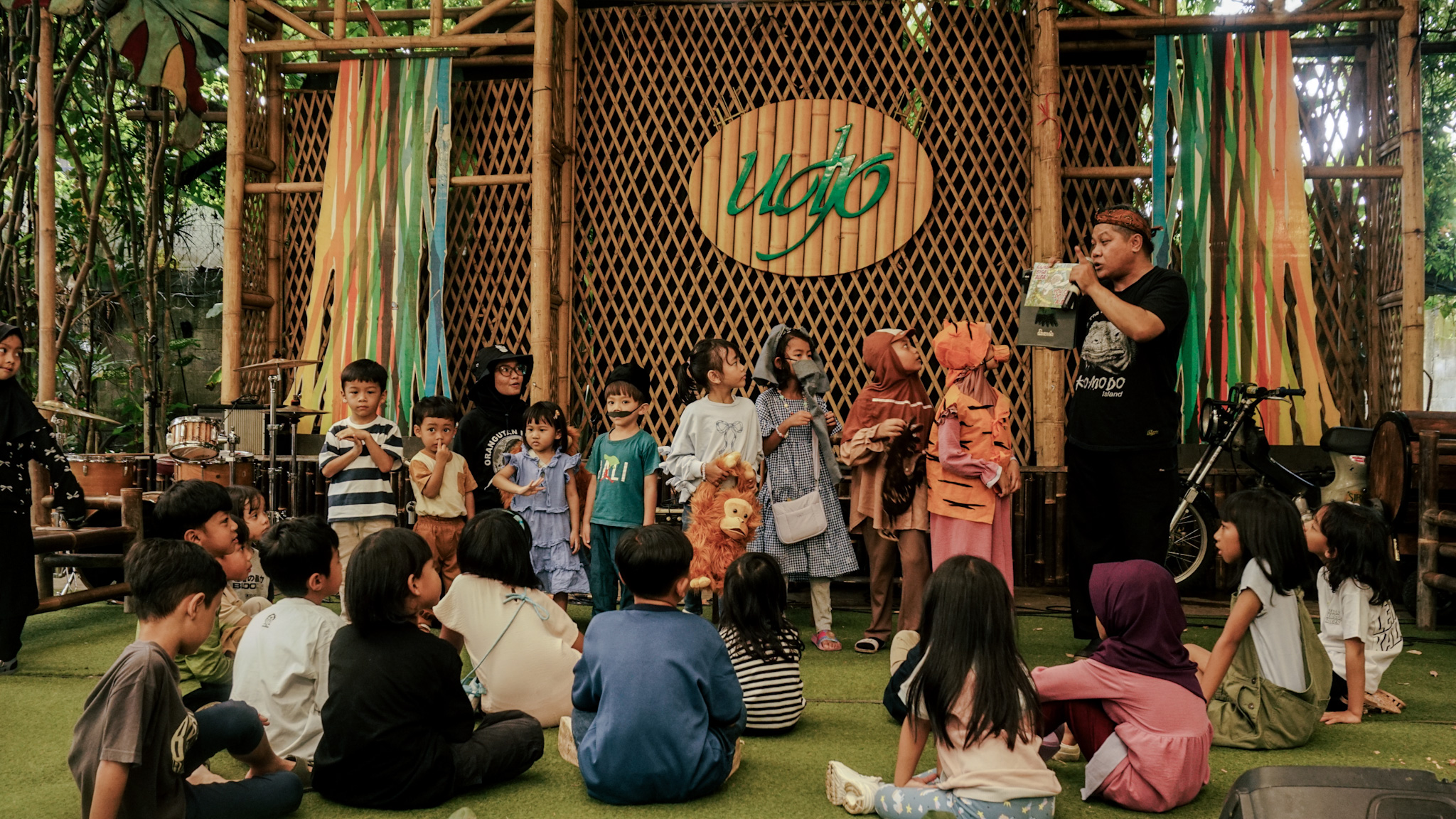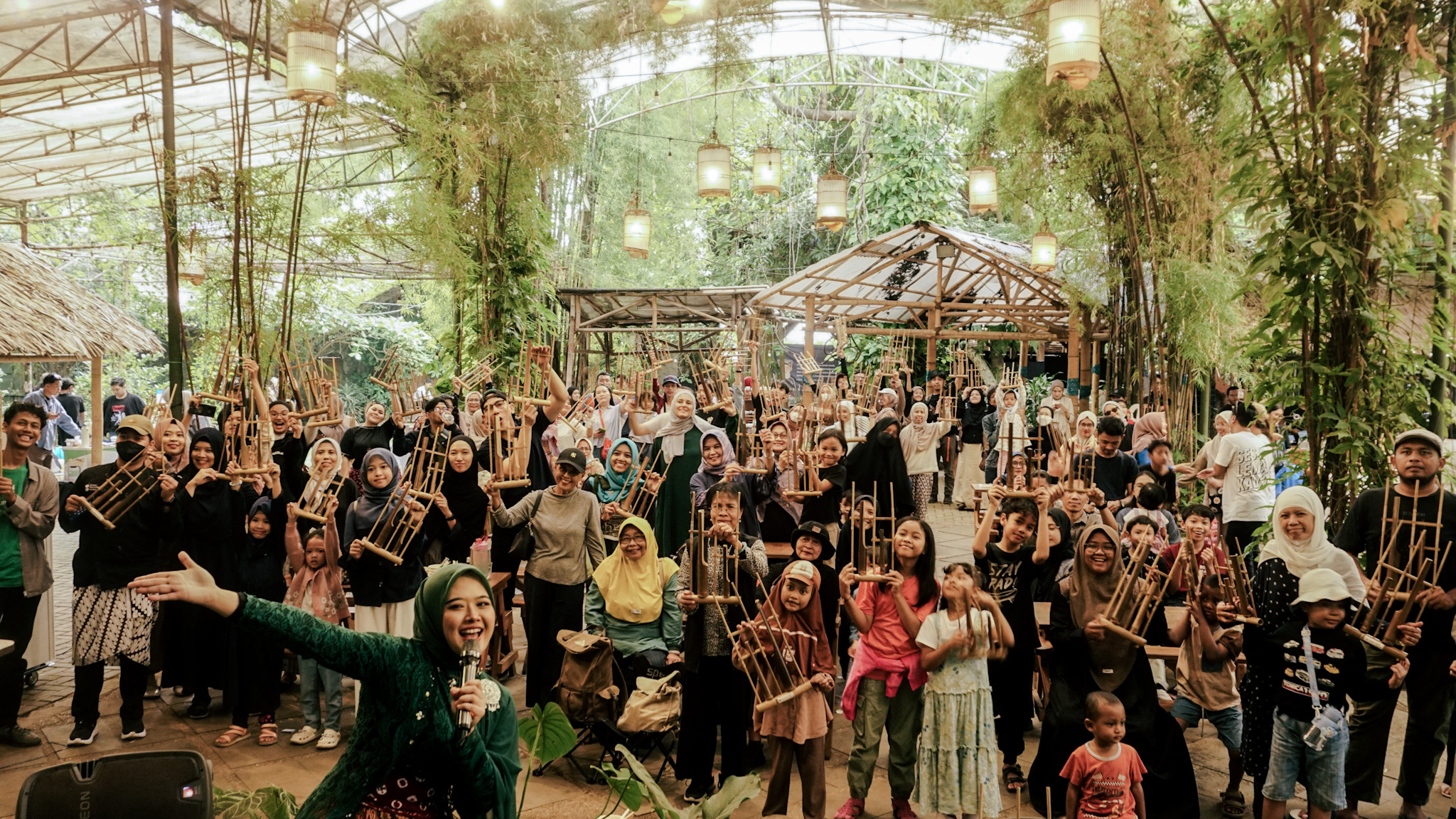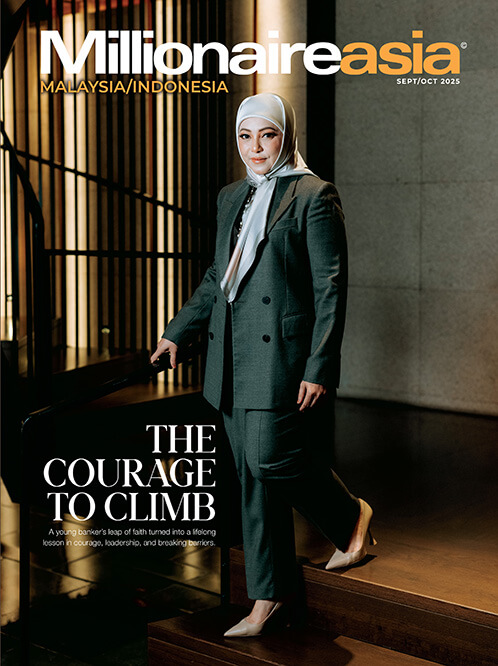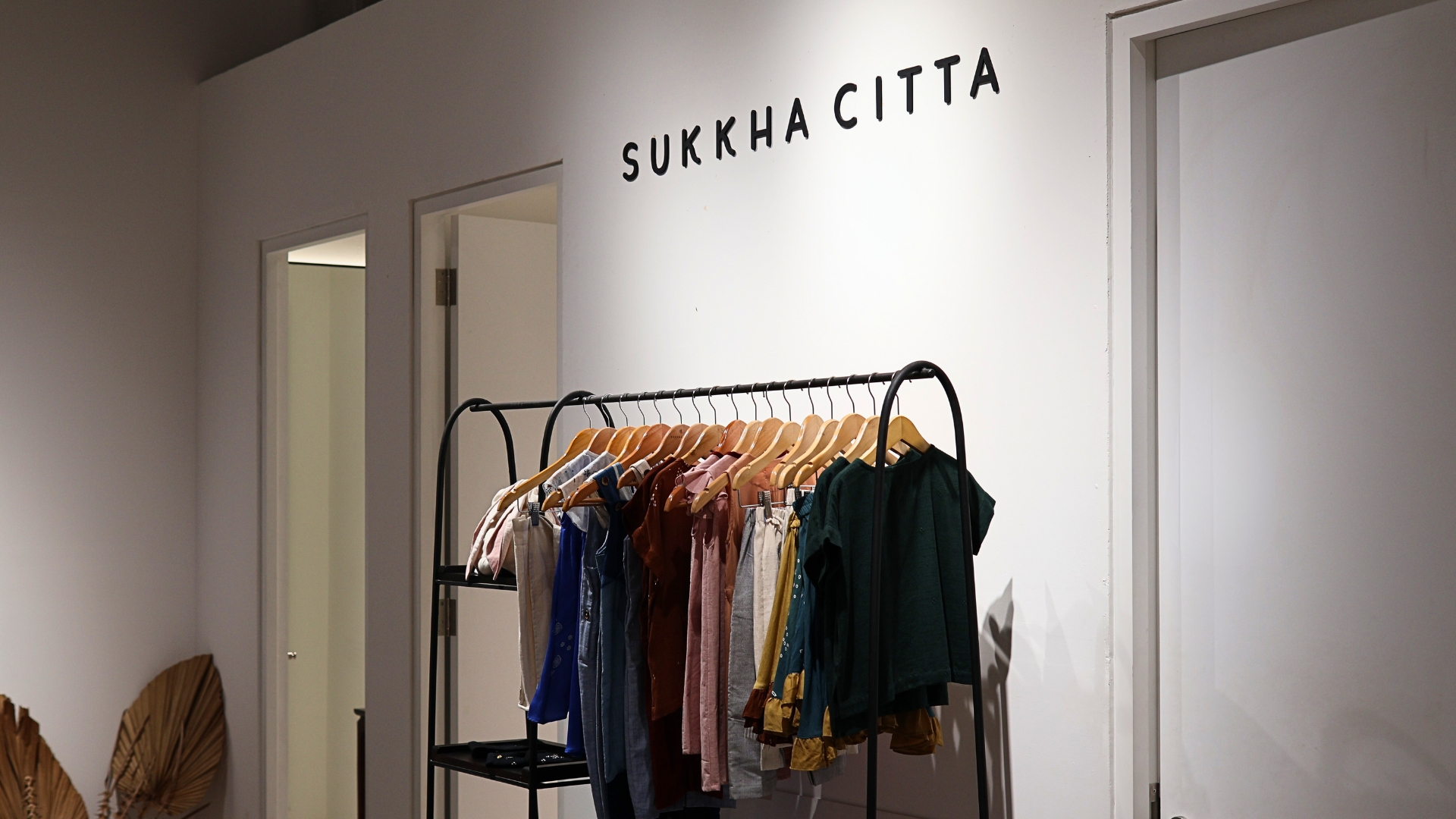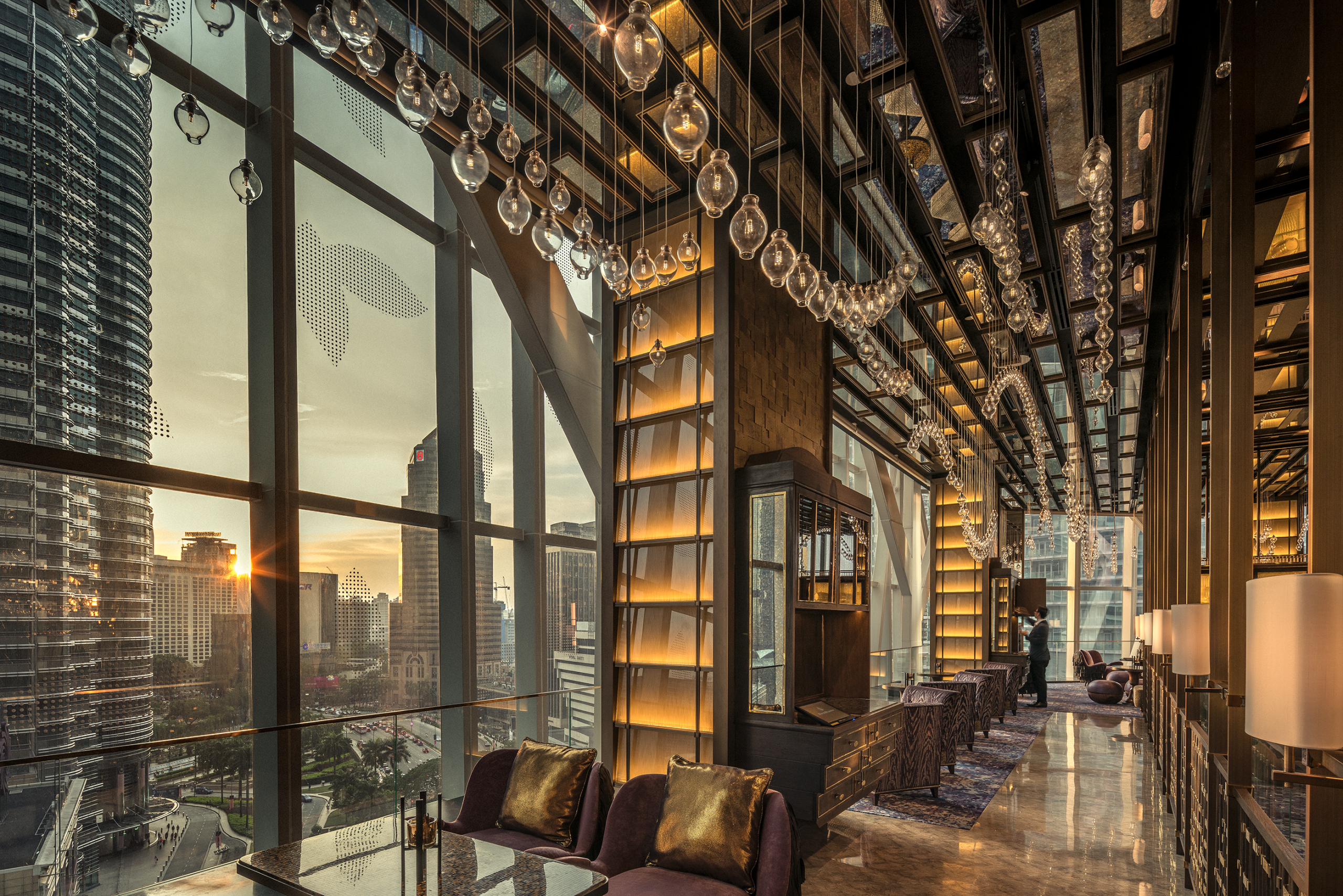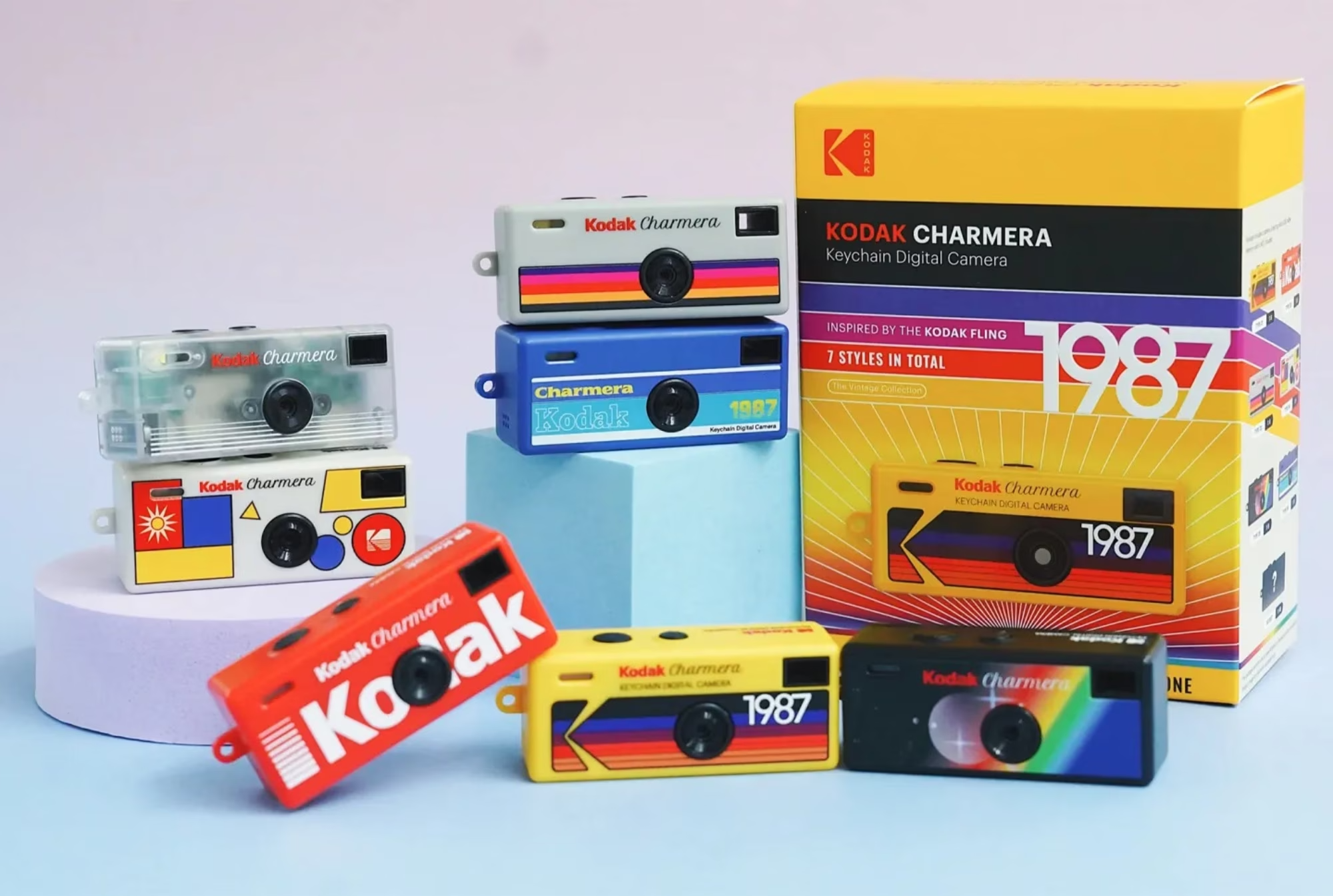“I want to create something meaningful and empowering for others.”
That’s the guiding belief behind Dama Kara, the batik label founded by Nurdini Prihastiti.
The desire to do good is embedded in the brand’s very name: dama means virtue or goodness, while kara is inspired by the philosophy of the coconut – where every part, from the leaves to the water, serves a purpose.
At 35, Nurdini has ended up not just building a fashion brand that’s made a name for itself across Indonesia and beyond. Along the way, she’s also helped nurture a movement rooted in purpose, resilience and connection.
Dini, as she’s affectionally known, hopes her brand can be a force for good.
More than just a fashion enterprise, Dama Kara is the entrepreneur’s way of contributing to society, especially when it comes to creating opportunities for people with special needs in Indonesia, particularly her hometown of Bandung, West Java.
Having spent three comfortable years working at a multinational company, Dini could have easily blazed along on a secure career path.
But her heart yearned for something more: she was looking for something with purpose, something that could help her empower others.
“While I was working, I felt that the benefits were mostly for myself and perhaps my family,” Dini recalls.
“But there came a point when I realised that we’re capable of creating a wider impact. One way to do that, I believe, is by becoming an entrepreneur.”
Stitching purpose into style
She decided to follow her heart.
In January 2015, Dini made the bold decision to resign from her job as a Plan-Do-Check-Act analyst and went home to Bandung to pursue a master’s degree in business at the Bandung Institute of Technology (ITB).
After graduating in 2017, she decided to venture into the business of fashion, laying the foundations for Dama Kara, which she would go on to found in 2020.
But the road was a rocky one paved with trials and setbacks that tested her resilience and shaped her entrepreneurial path.
One of the most difficult chapters came in 2019, when she was running a made-to-order garment business. At the time, she was fulfilling a major order for uniforms and other items for a mining company in East Kalimantan.
Tragically, the shipment was destroyed in a fire at sea near the Masalembo waters.
“That was one of the biggest losses I’ve ever experienced in business,” Dini recalls.
“It reminded me that everything we have is merely entrusted to us by the Almighty. Our business, our wealth - when God decides to take them away, He can do so at any moment.”
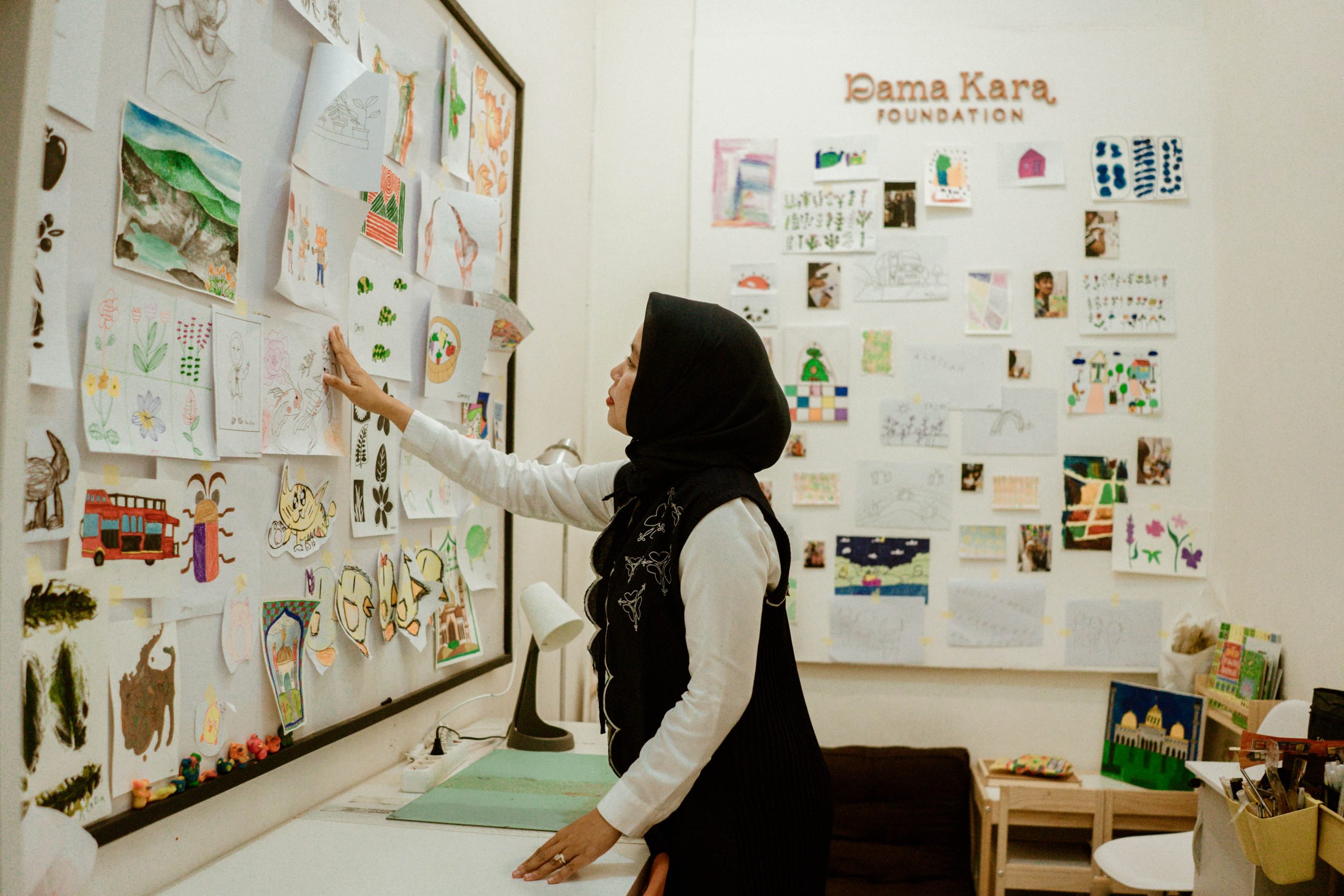 That left a profound mark on her: she decided to start a business that would bring about something meaningful.
That left a profound mark on her: she decided to start a business that would bring about something meaningful.
And so Dama Kara – a brand rooted in purpose, resilience, and a deep commitment to empowering others – was born.
Batik with soul and sustainability
Launched in 2020, Dama Kara repositions batik for a new generation.
Instead of seeing the traditional Indonesian textile as dated or ceremonial – something reserved only for the older generation – Dini invites people to see its imperfections as part of its unique beauty.
To her, these imperfections and the human touch are where the true elegance of batik lies.
“In batik, you won’t always find the kind of perfection seen in modern techniques like digital printing,” she explains, her eyes lighting up.
“Its luxury, I believe, comes from that very imperfection.”
Each piece of batik produced through handcrafted techniques is inherently unique. No two fabrics are exactly alike, whether in motif, linework, or colour.
“Because it’s made by hand, the lines may not be perfectly straight, and the patterns and shades might vary slightly from one piece to another,” says Dini. “And that, to me, is where the luxury resides: in its flaws, in its individuality.”
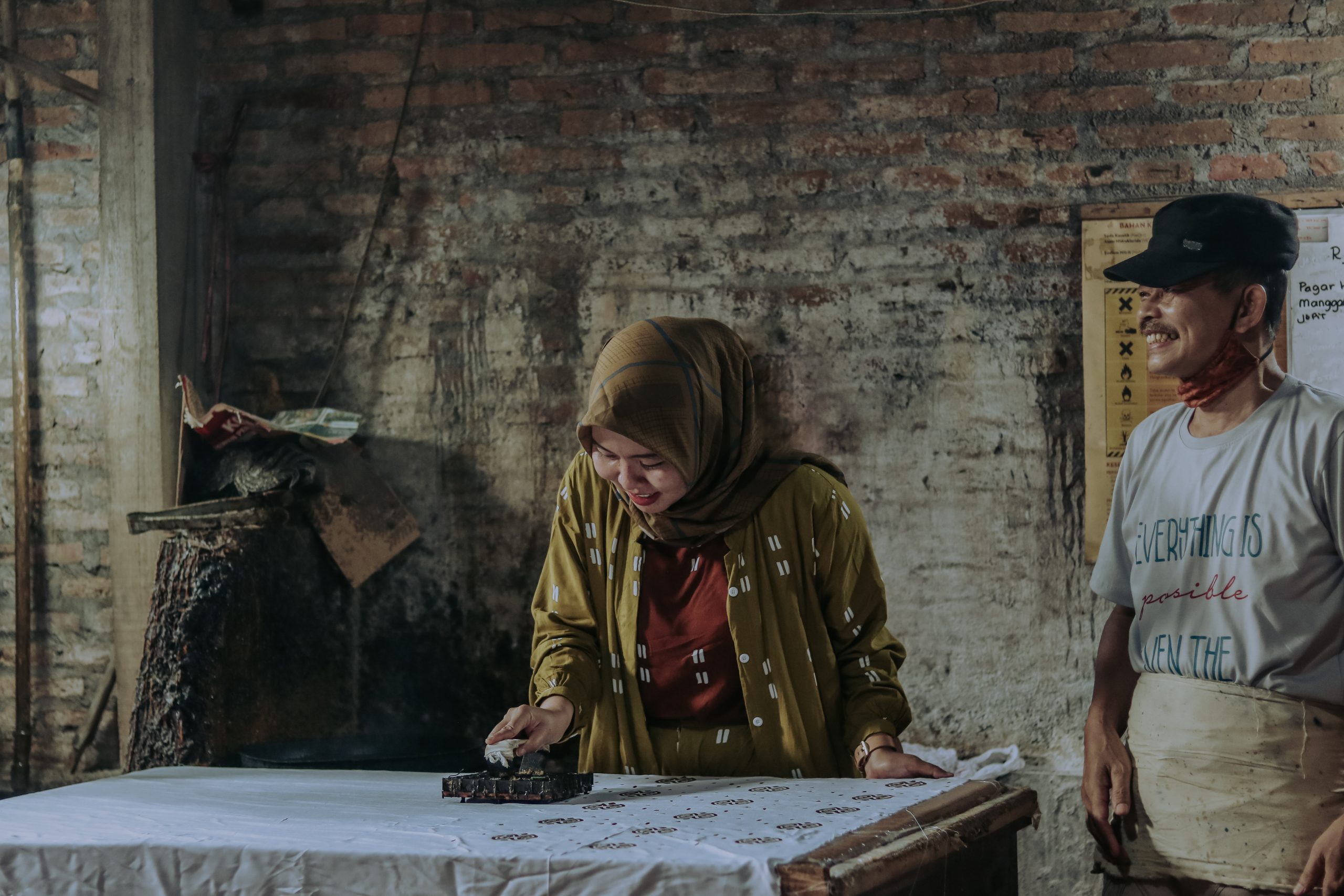 This philosophy mirrors Dini’s view on life: that perfection belongs only to the divine, and human beings are inherently a mix of strengths and shortcomings.
This philosophy mirrors Dini’s view on life: that perfection belongs only to the divine, and human beings are inherently a mix of strengths and shortcomings.
It’s a message she hopes to convey through Dama Kara: that embracing imperfection is not only beautiful, but deeply human.
It’s a philosophy that echoes her deeper mission: to embrace individuality, celebrate imperfection, and create inclusive opportunities.
Designing with purpose
One of the core missions behind Dama Kara is empowering others, particularly children with special needs.
The brand gets them involved in the creative process, giving them space to express themselves through craft.
“What I try to carry through Dama Kara is the idea that when we wear something, it should mean more,” Dini says.
“More than just looking good, it should carry value for others too. When someone chooses to buy Dama Kara, they’re also supporting those who may not have had the opportunity to create before, including friends with special needs who now have the chance to work and grow alongside us.”
As the brand grew, so too did its social reach.
By 2024, Dini expanded her collaborations to include Art Therapy Center Widyatama in Bandung, a move that eventually led to the creation of the Dama Kara Foundation.
Through this foundation, the brand has continued to nurture creativity among children with ASD, offering them a platform to share their artistic voice and receive recognition.
“For me, it was a dream come true,” Dini says. “I’ve always wanted children with special needs in Indonesia to have a space to create regardless of their limitations.”
She recalled a pivotal moment during her work with one of the foundations.
“They showed me a collection of drawings by children undergoing therapy. I was struck by their individuality. Each child had a unique visual language. In fact, some of their illustrations had a depth and character that many of us might never be able to replicate,” she says.
Each child whose artwork is used receives royalties, giving their families both financial support and a sense of pride.
Dini recalls how a parent, who had previously felt hesitant about raising another child after discovering that their first child had special needs, gradually grew to better understand their child through the collaboration.
Witnessing their child’s artwork celebrated in a fashion collection became a powerful form of validation, and revealed to the parents strengths and talents that had been overlooked.
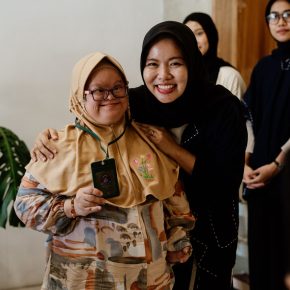
“That moment affirmed everything,” Dini says. “It reminded me why we do this. Why Dama Kara must continue to give space for these children to shine in their own way.”
Fusing aesthetic and inclusion
To date, Dama Kara has collaborated with twelve children with special needs – a deeply rewarding journey for the brand and for Dini herself.
But integrating their bold, colourful artwork into the brand’s earthy aesthetic was a creative challenge.
“The children’s artwork is often very colourful and vibrant, while Dama Kara is rooted in earth tones and solid, muted palettes,” explains Dini.
“At first, we directly translated their drawings into garments, only adjusting the placement. But when the colours didn’t align with Dama Kara’s DNA, we noticed the market was slow to respond.”
The team spent nearly a year studying this issue. Although the initial pieces were visually compelling, they didn’t perform as strongly in terms of sales compared to other collections.
This prompted a shift in approach.
For subsequent collections, Dama Kara began curating the children’s artworks more carefully, adapting them in a way that resonated with the brand’s tone and design language.
“We saw a noticeable difference in how the market received the new collection,” Dini recalls.
“It led us to conclude that the children’s illustrations and Dama Kara’s identity need to be woven together as one coherent story. They must marry. The two elements must truly complement each other.”
Finding this delicate balance between artistic authenticity and brand cohesion continues to be a creative pursuit for Dini and her team.
But for them, the effort is worth it, not just to maintain aesthetic consistency, but to ensure that the voices and talents of neurodivergent children are celebrated in a meaningful and sustainable way.
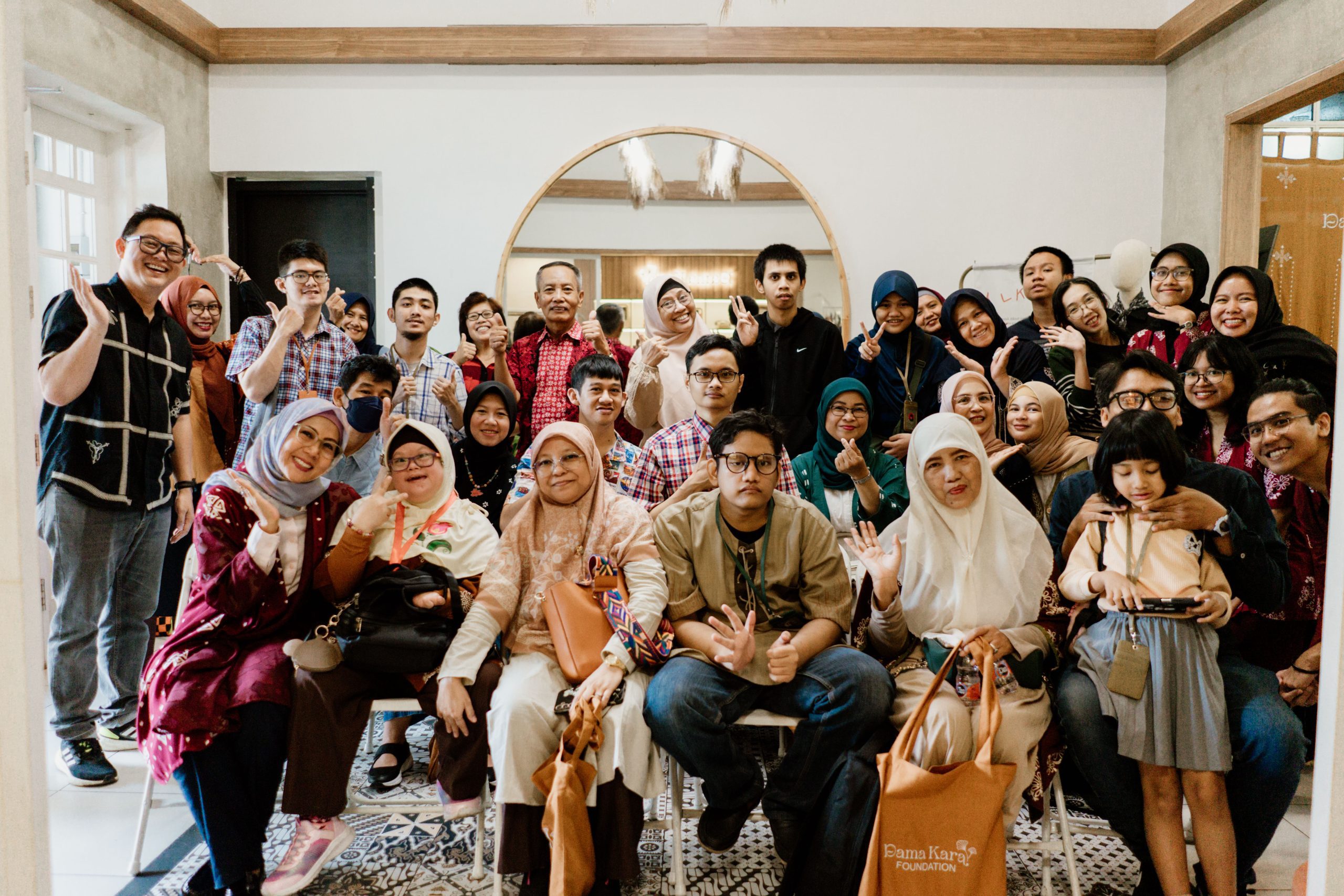
Lighting the way
As Dama Kara continues to rise in prominence within the Indonesian fashion scene, the brand was given a remarkable opportunity to collaborate with one of the country’s most celebrated actresses, Putri Marino.
Dini and the Dama Kara team set out to uncover a meaningful story about the actress, one that would resonate with their audience and align with the brand’s ethos.
“We wanted to highlight that every person is special,” Dini explains
“So, we approached Putri for a brainstorming session, to learn more about her story and discover the thread that would unite our vision.”
Through their discussions, they uncovered a powerful message: everyone has their own light.
Dini continues: “The story we want to share through this collaboration is that no one can extinguish your light except yourself.”
The collection born from this partnership was named Suar (meaning light or radiance).
It’s a reminder to embrace one’s unique spark and never let it fade because, at the core, every individual is special.
Going global, staying grounded
Dama Kara’s star is rising on the global stage as well.
In 2024, the brand was invited to showcase its creations in France and South Korea.
It was a pleasant wake-up call for Dini; she realised that her brand spoke to overseas markets too.
“I was still focused on the domestic market,” she recalls
“But when we went to South Korea and spoke directly with the people there, they embraced Dama Kara warmly. Some even invited us to open a store there, and upon returning to Indonesia, they continued to purchase our pieces.”
People in South Korea, she recalls, were particularly fond of Dama Kara’s Sashiko collection, which features hand-stitched embroidery. This collection was a collaboration with Salma, a talented young girl with hearing disabilities who excels at creating intricate sashiko designs.
Meanwhile, in Paris, locals were drawn to Dama Kara’s commitment to handcrafting and sustainability.
“When we presented our collection made from coffee grounds and coffee dye, they were extremely enthusiastic about it,” Dini says.
Plans for expansion in Southeast Asia are already on the horizon.
Dini shared that when Dama Kara opened a store in Bandung, they noticed a growing number of visitors from Singapore and Malaysia.
“We’ve already been approached by potential collaborators from Malaysia, and in early 2025, we have the opportunity to exhibit in Singapore,” she adds. “The cultural similarities between Indonesia, Singapore, and Malaysia make it a promising avenue for collaboration.”
Beyond fashion
In 2024, the Dama Kara Foundation was set up – concretising the fashion brand’s commitment to doing good.
Since founding Dama Kara in 202, Dini had always envisioned a portion of the brand’s profits supporting initiatives for people with disabilities through carefully selected foundations.
However, the execution didn’t go as smoothly as planned.
Efforts to support activities like drawing classes for children with disabilities fell short, as they didn’t receive the necessary reports and feedback. To ensure the foundation’s goals could be properly realised, Dini decided to establish the Dama Kara Foundation to handle administration more efficiently.
“It wasn’t easy to find partners who shared Dama Kara’s vision. We realised that we couldn’t work with just one or two foundations, so we created the Dama Kara Foundation to collaborate with more organisations,” she explains.
This allows for better hands-on impact.
With the foundation now in place, Dini hopes to collaborate across multiple sectors, expanding beyond education for children with disabilities to include social initiatives.
Initiatives now include embroidery training for rural women and a “Buy One Sarung, Give One Sarung” campaign for the homeless.
“We want to focus not just on educational or training initiatives, but also on broader social activities,” Dini says.
One of the brand’s signature collections, Jalin, utilises traditional hand-stitching techniques. Though popular, the handmade nature of the collection makes production slow.
“We aim to empower women to create these pieces at home, which would allow them to earn a living without having to leave their villages,” Dini shares.
Enter Pasar Guyub
And Dini’s efforts go beyond fashion.
In 2024, she launched Pasar Guyub – an eco-conscious community market she founded with friends and family.
It was born from Dini’s growing concern about the deteriorating condition of the Earth, especially when it comes to waste production and air pollution.
“We created Pasar Guyub as a space to teach people that waste should be sorted, that used cooking oil can be repurposed, and that art can be passed down through generations,” she explains.
Pasar Guyub also provides a platform for local entrepreneurs and small businesses, giving them an affordable space to sell their goods.
“The booth fee is only IDR 550,000 (US$33.50), which is much more accessible compared to the high rental fees elsewhere,” Dini adds.
Held once every three months, Pasar Guyub features around 20 vendors, with offerings ranging from food and beverages to wellness products, children’s items, and workshops.
Through Pasar Guyub, Dini also learned the importance of educating young families to care for the environment.
“We encourage young families to visit Pasar Guyub and teach their children about the importance of protecting the Earth,” she says.
A legacy in the making
Through all of this, Dini remains focused on one thing: timeless, thoughtful impact.
Her vision for the future is clear. She believes that sustainable fashion will become a way of life for people in Southeast Asia.
At a recent booth opening in Singapore, one of the most common questions was about the fabric used in Dama Kara’s collections.
“We’ve always used 100% cotton in our designs, as part of our commitment to sustainability,” Dini says.
Through careful selection of materials and versatile designs, Dama Kara encourages customers to invest in long-lasting pieces, promoting sustainable fashion choices.
Dini hopes that Dama Kara becomes synonymous with the idea that creativity knows no bounds and that anyone, regardless of their perceived limitations, can express themselves through art and fashion.
She hopes the brand continues to inspire, not just through its clothes, but through its values.
With a smile, Dini says: “We want our customers to feel inspired to do good in their communities while wearing Dama Kara.”
